|

HOME |
ABOUT | INDEX |
NEWS |
FACEBOOK |
CONTACT
IN THE
CAFE
Sanctuary | Salon | Sacred Space
Welcome to the
Queer Cafe
Pull up a
chair. Get comfortable. Relax. Make yourself at home.
You are among friends. This is the neighborhood cafe. It
is a casual intimate setting, a cozy little nook with a
warm and friendly atmosphere. It is filled with cheerful
and energetic voices. The cafe is a conducive place to have a
pleasant chat
with friends while sipping a cup of coffee, a cup of
tea, or a glass of
wine.
You'll notice the diverse clientele. People in the cafe
are from various parts of town, from all layers of
society, and from all walks of life. Many of the patrons
seem to know each other and exchange greetings. But it
is also a place that is welcoming of newcomers. It is an
accepting and affirming place where people come for the atmosphere
that bonds them together and gives them the opportunity
to meet new friends.
The cafe
fosters a sense of community and belongingness. Some
folks regard the cafe as a refuge away from the frenzy
of their work day and the worries of their everyday
life. Some consider it a sanctuary or safe haven where they can get away from
pressure, judgment and
oppression and just be themselves. It is a sacred space.
Two Gay Girls Singing in a Cafe
LGBTQ Cafe: Lessons on Coffee and Tea
When Harry Met Sally: Diner Scene
Most Popular LGBTQ Bars in US
Cheers: Too Ugly to Be Gay
Spontaneous Singing at Central Perk
Moonlight: Diner Scene
Friends Hanging Out at Central Perk
Notting Hill Dinner Scene: The Last Brownie
Schitt's Creek: The Wine
and Not the Label
Niles Orders Coffee
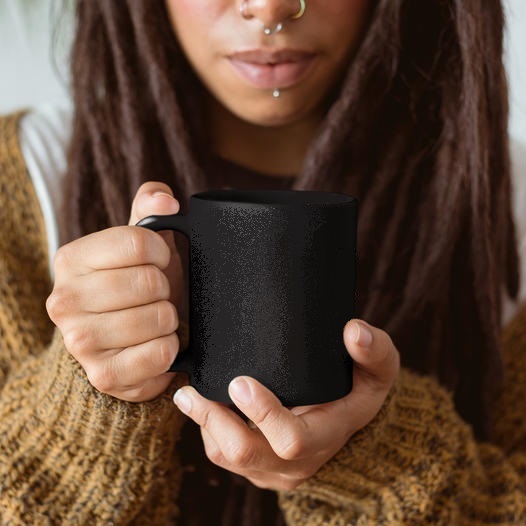
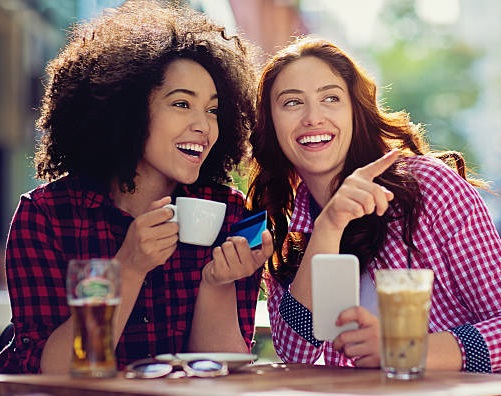
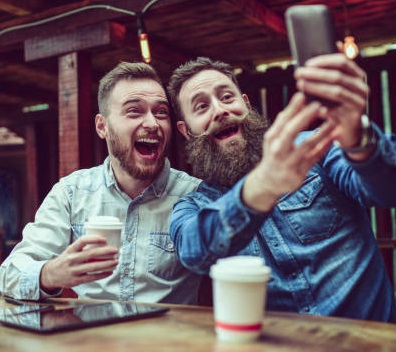
You are
invited to step into our vibrant world, where lattes,
cappuccinos, and espressos meet the colors of the
rainbow, and a warm, inclusive embrace awaits you.
Welcome to the hub that celebrates the rich tapestry of
LGBTQ life through the lens of a cozy café. In our cafe,
we believe that diversity is the spice of life, and our
mission is to brew a perfect blend of acceptance,
empowerment, and community.
Like the finest coffee beans sourced from different
corners of the world, the LGBTQ community represents an
array of unique identities and experiences. We take
pride in offering a safe and welcoming space for
everyone, regardless of their gender, sexual
orientation, or gender expression. This virtual café is
a haven where conversations flow freely, and the aroma
of acceptance fills the air.
As you browse through the various sections of our cafe,
you'll discover the myriad aspects of the LGBTQ
community. From heartwarming personal stories to
thought-provoking discussions about LGBTQ history,
culture, and achievements, we aim to present a diverse
range of narratives that make up the tapestry of our
community.
Just as every café has its signature drink, we serve up
a delightful concoction of resources and support for
LGBTQ individuals and their allies. Whether you're
seeking advice on coming out, exploring your identity,
or looking for ways to become an ally yourself, our menu
of information is here to nourish your soul.
So, whether you're a longtime member of the LGBTQ
community, an ally eager to understand more deeply, or a
curious soul seeking knowledge, we raise our rainbow
flags to welcome you. Sip on the flavors of diversity,
savor the essence of acceptance, and let our cafe be
your home away from home, a place where the LGBTQ
community blossoms with love, understanding, and unity.
Lesbian Waitress Hassled by Customers
Amazing TV Show Hangout Spots We Wish
Were Real
Mickey and Ian: Marriage Proposal in a Diner
Gay Scandinavian Cafe in Puerto Vallarta
Over Confident Gay Guy in a Fast Food Restaurant
Queer Brunching: LGBTQ Roundtable Chat 1
Inside the Historic Lesbian Cafes That Fed the Feminist
Movement
Gay Soldier Berated in Restaurant
Pulp Fiction Cafe Scene
Coffee House News
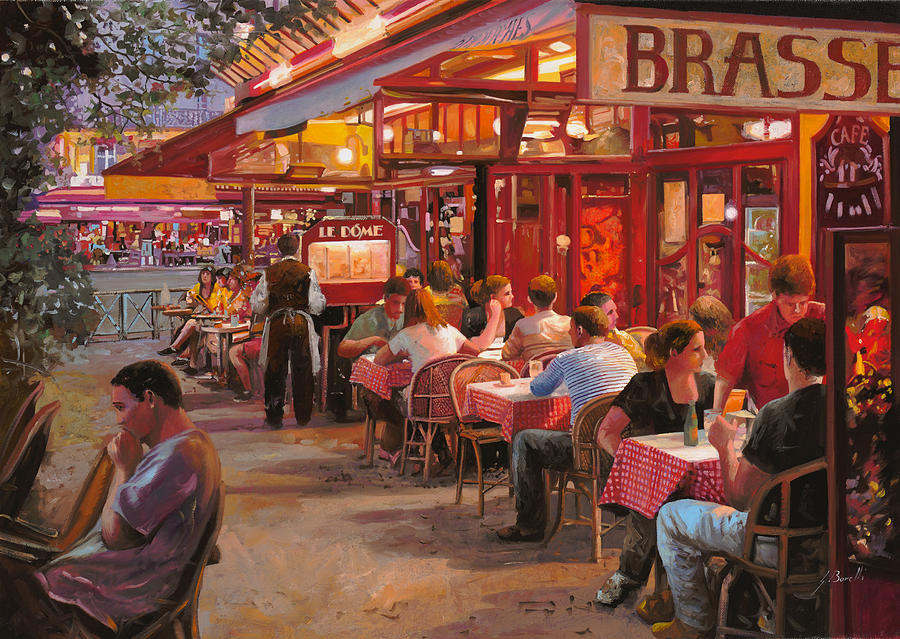
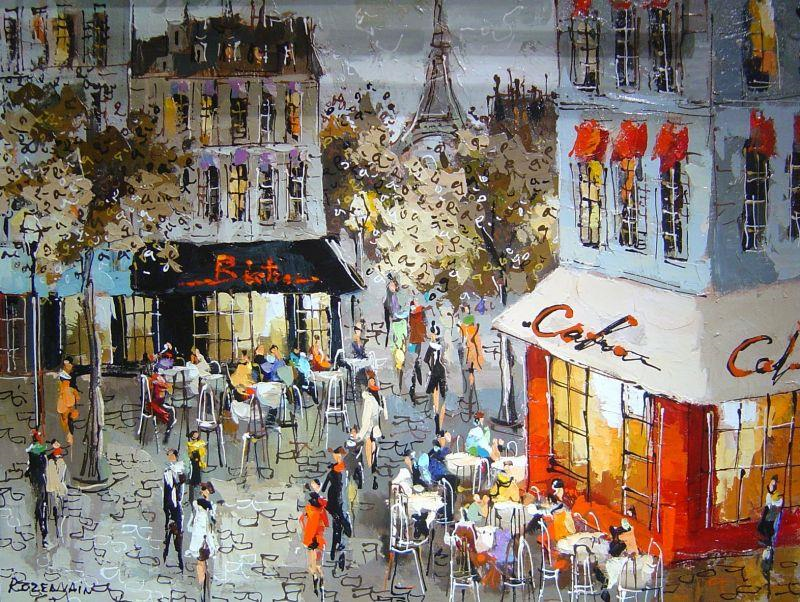
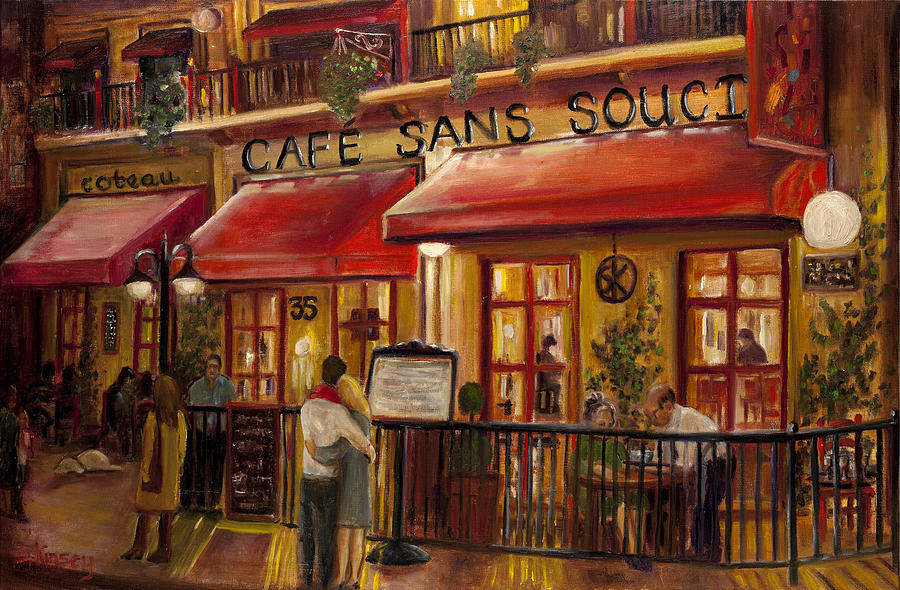
Let's Meet at
the Cafe
"Meet me
at the coffee shop so we can dance like Iggy pop"
-Red Hot
Chili Peppers
"I know a
place where the music is fine
And the
lights are always low
I know a place where we can go
At the door there's a man who will greet you
Then you go downstairs to some tables and chairs
Soon I'm sure you'll be tappin' your feet
Because the beat is the greatest there
All around there are girls and boys
It's a swingin' place, a cellar full of noise
It's got an atmosphere of its own somehow"
-Petula Clark
"You can
get anything you want at Alice's Restaurant."
-Arlo
Guthrie
"I am sitting in the morning at the diner on the corner
I am waiting at the counter for the man to pour the
coffee
He is looking out the window at somebody coming in
It is always nice to see you, says the man behind
the counter"
-Suzanne Vega
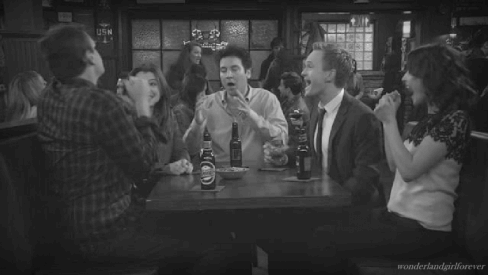
Niles Orders Coffee
Best LGBTQ Bars in New York City
Family Gay Bashed in Texas Cafe
Schitt's Creek: The Wine
and Not the Label
Amazing TV Show Hangout Spots We Wish
Were Real
Scene from Diner Film: Sinatra or Mathis
Info: LGBTQ Food and Restaurants
LGBTQ Cafe in New Delhi, India
Spontaneous Singing at Central Perk
Steve Working at the Peach Pit
Best LGBTQ Bars in Los Angeles
"Making
your way in the world today takes everything you've got
Taking a break from all your worries sure would help a
lot
Wouldn't you like to get away?
Sometimes you wanna go where everybody knows your name
And they're always glad you came
You wanna be where you can see our troubles are all the
same
You wanna be where everybody knows your name"
-Portnoy &
Hart
"A bottle
of white, a bottle of red, perhaps a bottle of rose
instead
We'll get a table near the street, in our old familiar
place, you and I, face to face
A bottle of red, a bottle of white, it all depends upon
your appetite
I'll meet you any time you want, in our Italian
restaurant
A bottle of red, a bottle of white, whatever kind of
mood you're in tonight
I'll meet you anytime you want, in our Italian
restaurant"
-Billy
Joel
"Come on
down to the Mermaid Café
And I will buy you a bottle of wine
And we'll laugh and toast to nothing
And smash our empty glasses down"
-Joni
Mitchell
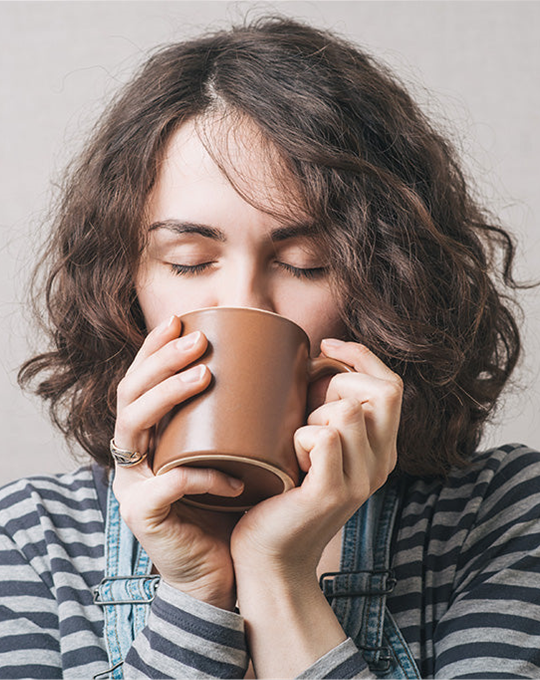
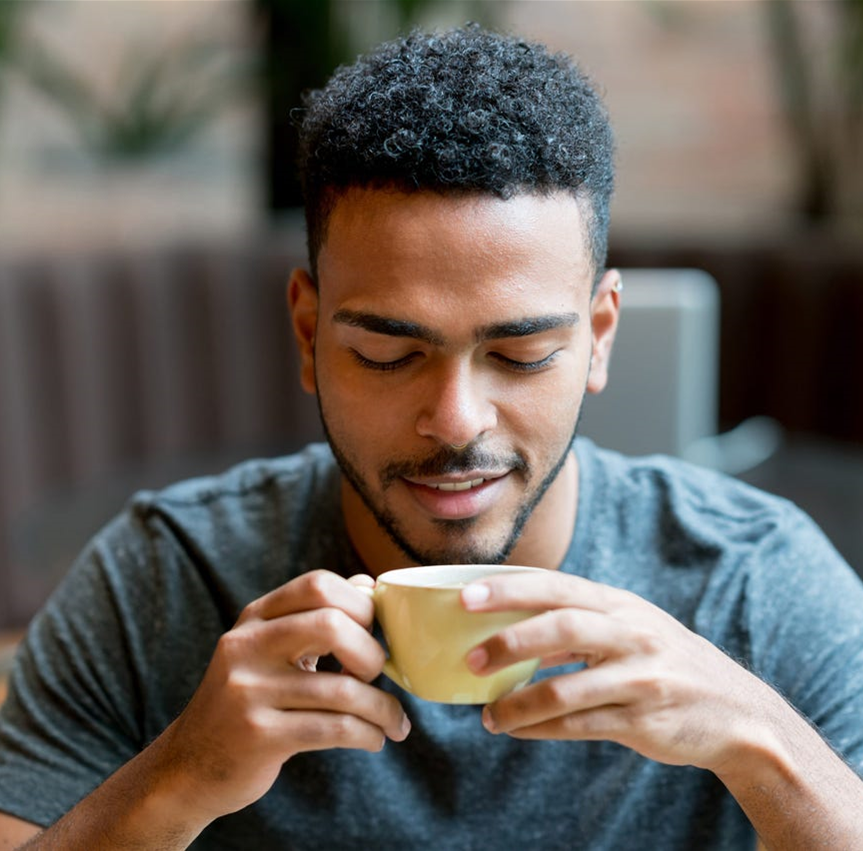
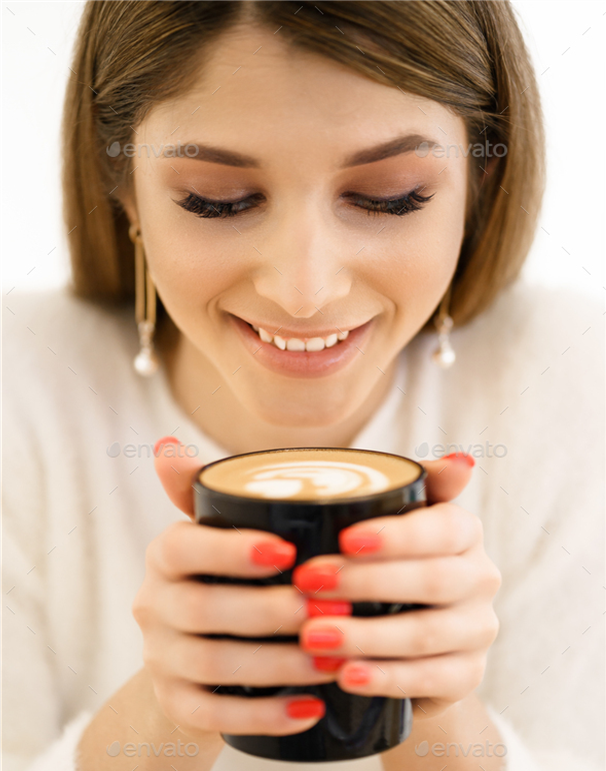
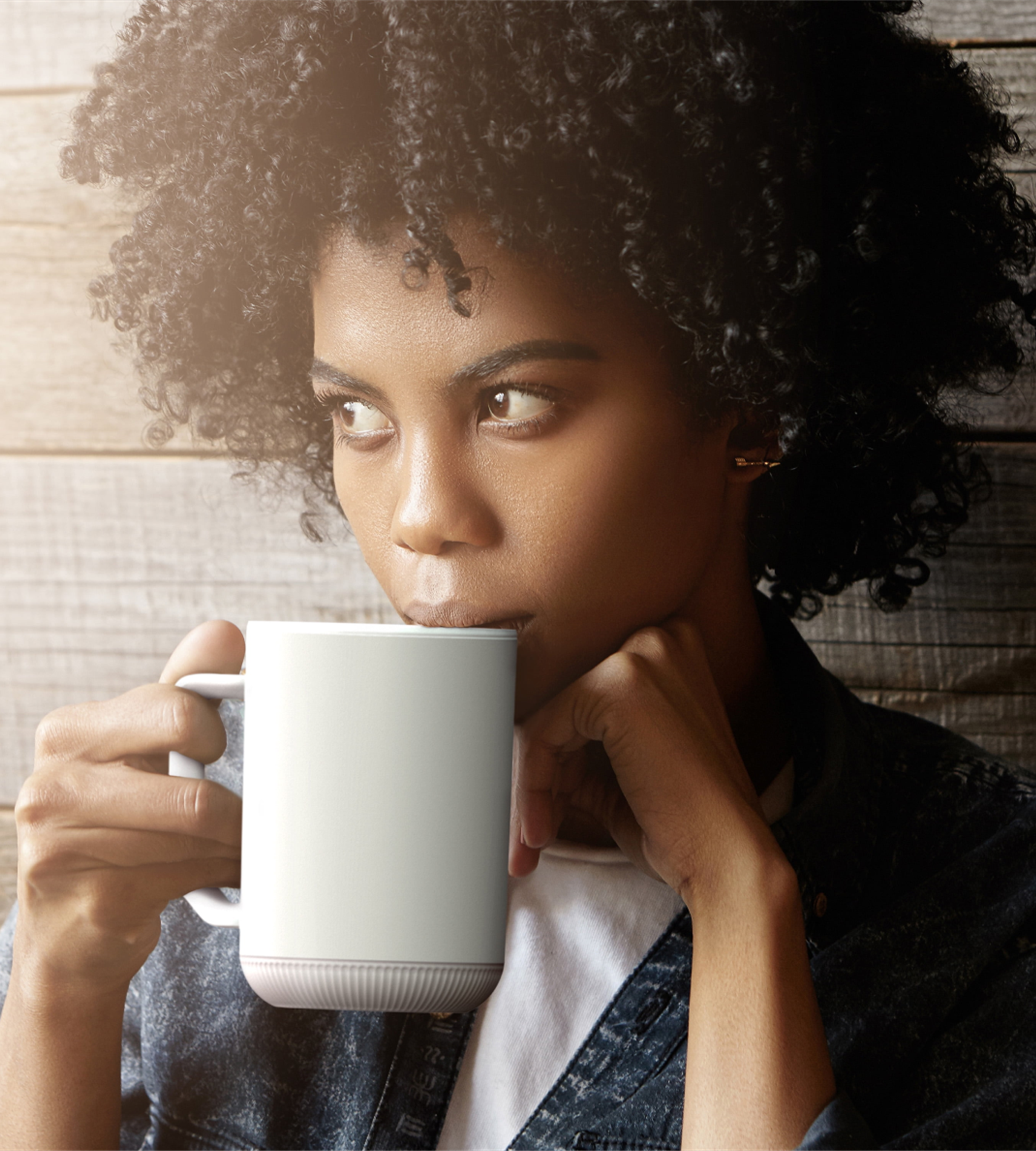
Diner Girl
Moonlight: Diner Scene
Long Live the Queer Cafe
Big Lebowski: Enjoying My Coffee
I Know a Place by Petula
Clark
The Avengers in a Schwarma Restaurant
LGBTQ Cafe in Dominican Republic
Schitt's Creek: The Wine
and Not the Label
Cup of Tea: Bringing People Together
Casablanca: Rick's Cafe Americain
Culinary Icon James Beard:
Gay Male Julia Child
"Bruno has
a lovely place, It's down on seventh street,
Bruno has a lovely place, I go there and I eat"
-Loudon
Wainwright III
"I
remember the times we spent inside the Sad Cafe
Oh it seemed like a holy place protected by amazing
grace
And we would sing right out loud the things we could not
say
We thought we could change this world with words like
love and freedom
We were part of the lonely crowd inside the Sad Cafe"
-Eagles
"That
little coffee shop is where we used to go
When life was good and happy.
We didn’t have a care in the world,
Inside that little coffee shop."
-Emma
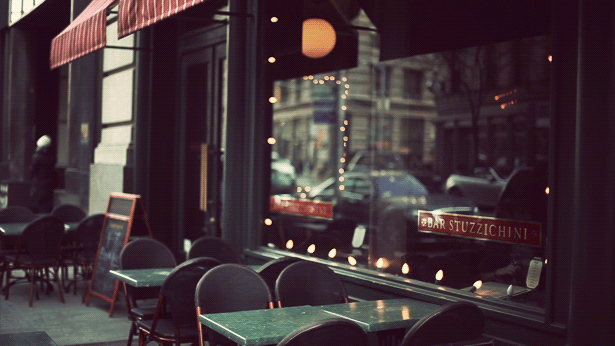
Moonlight: Diner Scene
Two Gay Girls Singing in a Cafe
LGBTQ Cafe: Lessons on Coffee and Tea
When Harry Met Sally: Diner Scene
Conversation About Reality: My Dinner With Andre
Gay Couple Gets Kicked Out of Cafe for PDA
Inception: Cafe Scene with Leo DiCaprio and Ellen Page
Short Film: Queer Qafe
Culinary Icon James Beard:
Gay Male Julia Child
Alice's Restaurant by Arlo
Guthrie
Tour of Castro District in San Francisco
Queer Brunching: LGBTQ Roundtable Chat 2
Inside the Historic Lesbian Cafes That Fed the Feminist
Movement
La
Chica De La Barra
Tom's Diner by Suzanne Vega
Mickey and Ian: Marriage Proposal in a Diner
Brunch with Chris Hemsworth in Drag
Coffee House News
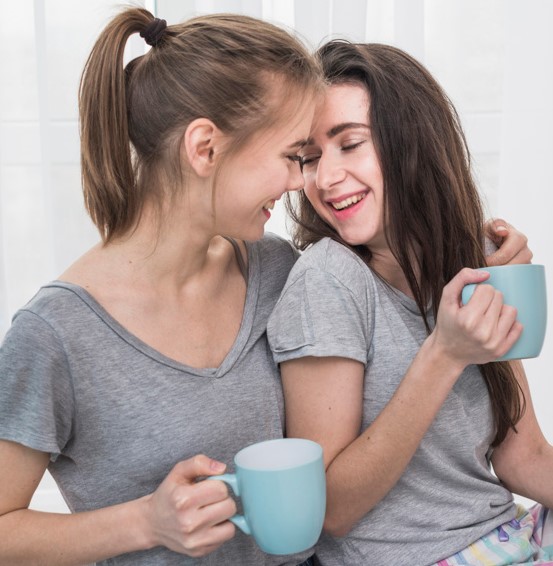
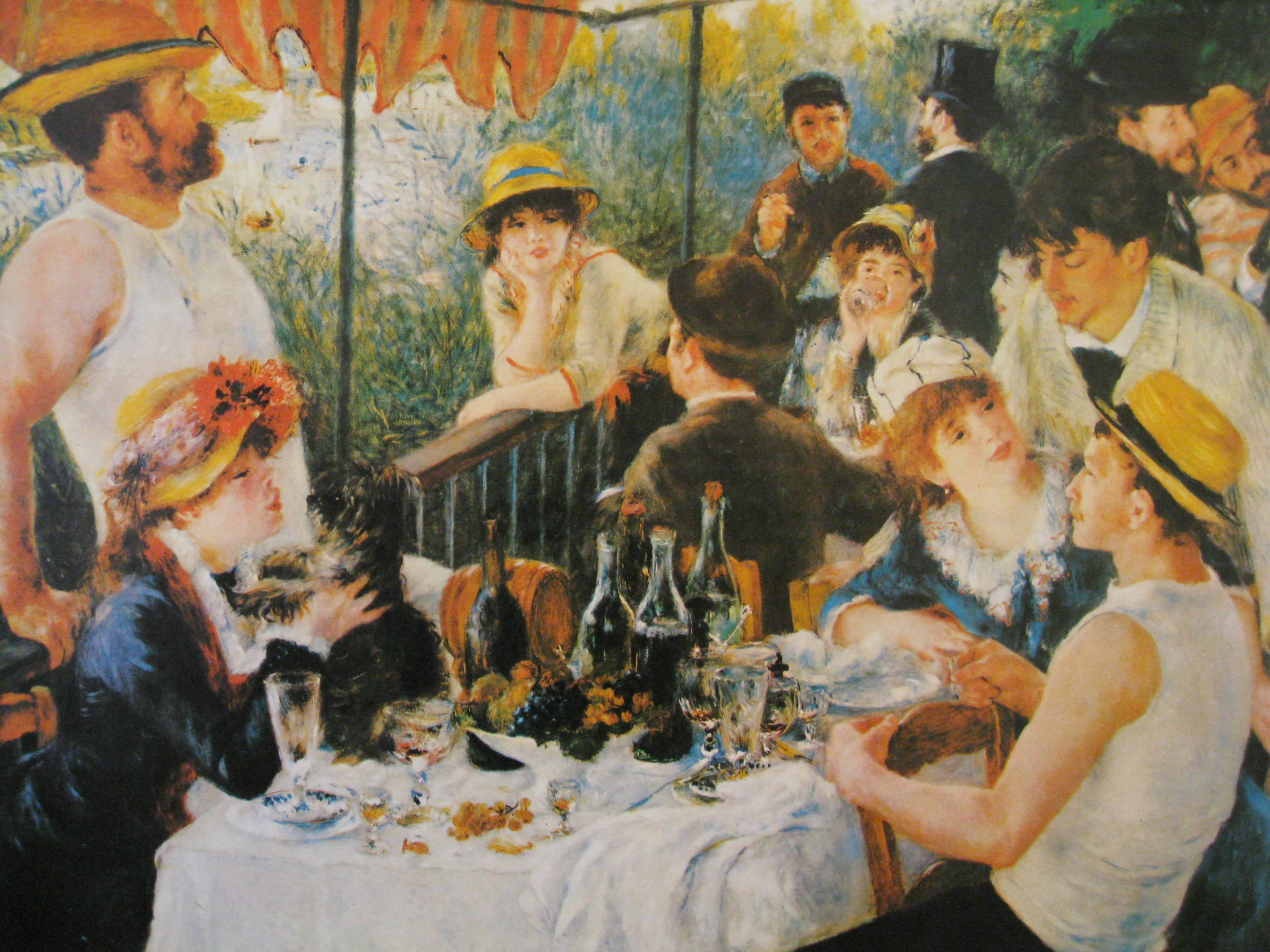
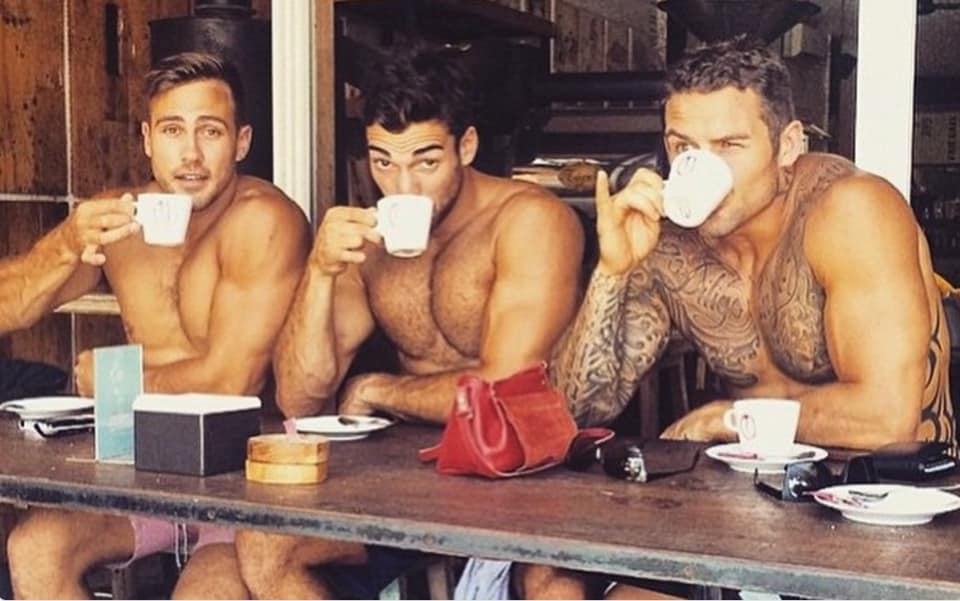
Perfect Social
Setting
So, what
is a cafe? And what does it symbolize?
Cafes really are
more than just places to eat a meal. Restaurants and
dining establishments of all types (cafe, coffee shop,
bistro, lounge, club, eatery, diner, bar, pub, tavern, saloon,
hangout, dive)
seek to not only serve delicious food and drink, but to
offer a positive social experience.
Cafés have been established as staples of society in
industrialized nations throughout the world. Cafés offer
a pick-me-up before work, a reward after a long day, a
stimulating environment for creativity, thought, and
lively discussion, or
simply a place to relax and spend time with friends.
Cafes and coffee shops provide the perfect
informal setting for
social interactions, conversations, meetings, mingling,
and hanging out. These venues lend themselves to gathering places,
meet ups, study halls, surrogate offices, chess
games, reading rooms, intellectual salons, discussion
groups, book groups, and social centers.
Cafes and
coffee houses continue to be venues where people gather
to talk, write, read, entertain one another, or pass the
time. Some research suggests that we use light hearted
conversation to establish and maintain our connection
within a group, as well as for mere information
transfer. So, by providing a space for regular, but
unplanned, interaction with members of the community,
cafes, coffee houses, diners, and bars may play a role in creating social
networks, and therefore encouraging community values.
These
kinds of public venues are so socially conducive that
sometimes a circle of friends might replicate the
experience by gathering at someone's home for a private
dinner party or salon.
Spontaneous Singing at Central Perk
Most Popular LGBTQ Bars in US
Five Easy Pieces: Diner Scene
Info: LGBTQ Food and Restaurants
Niles Orders Coffee
Notting Hill Dinner Scene: The Last Brownie
Gay Family Refused Service in a Cafe
Schitt's Creek: The Wine
and Not the Label
Cheers: Too Ugly to Be Gay
Steve Working at the Peach Pit
Culinary Icon James Beard:
Gay Male Julia Child
Tea for Two: Two Strangers on a Blind Date
Long Live the Queer Cafe
Friends Hanging Out at Central Perk
LGBTQ Protests: In Praise
of Gay Bars
Diner Girl
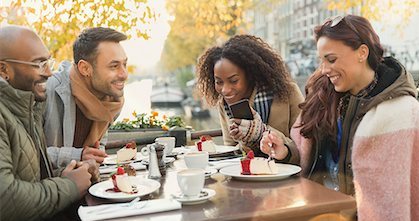
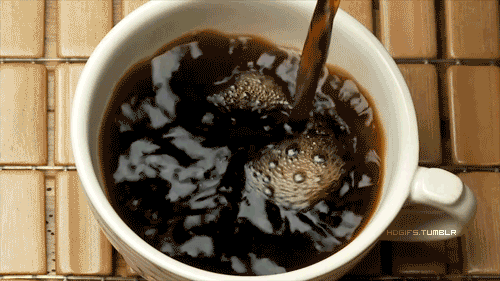
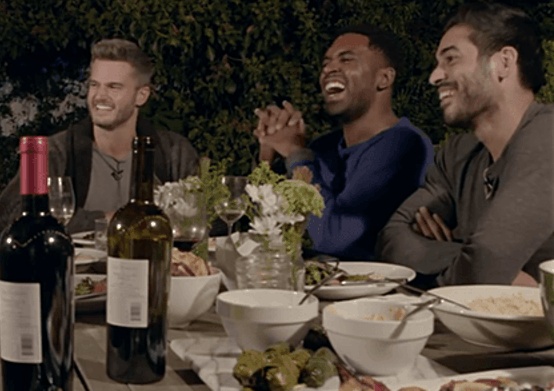
Famous Queer
Cafes
Queer-Owned and LGBTQ-Affirming Coffee Houses
Squirrel
Chops (Choppie's) - Seattle, WA
Equator Coffee - San Francisco, CA
Requiem Coffee, Tea & Fantasy - Anaheim, CA
Ultreya Coffee & Tea - San Diego, CA
Lussi Brown Coffee - Lexington, KY
Modal - Greenville, SC
Finca to Filter (Queer & Caffeinated) - Atlanta, GA
Yellow Mug Coffee Lounge - Asheville, NC
Elemental Coffee - Oklahoma City, OK
Grindhrs Coffee & Community - Toledo, OH
Uncommon Coffee - Saugatuck, MI
Parable Coffee - Columbus, OH
Drifter Coffee - Ferndale, MI
Bluestockings Cooperative - New York, NY
Crafted Kup - Poughkeepsie, NY
Eli Tea Bar - Chicago, IL and Detroit, MI
Blooming Hearts Roastery & Cafe - Milford, MA
Firestone Art Studio & Cafe - Manchester, CT
Notes Coffee Company - Providence, RI
Queer-Owned and LGBTQ-Affirming Coffee Houses
Two Gay Girls Singing in a Cafe
LGBTQ Cafe: Lessons on Coffee and Tea
When Harry Met Sally: Diner Scene
Most Popular LGBTQ Bars in US
Spontaneous Singing at Central Perk
Moonlight: Diner Scene
Friends Hanging Out at Central Perk
Notting Hill Dinner Scene: The Last Brownie
Schitt's Creek: The Wine
and Not the Label
Niles Orders Coffee
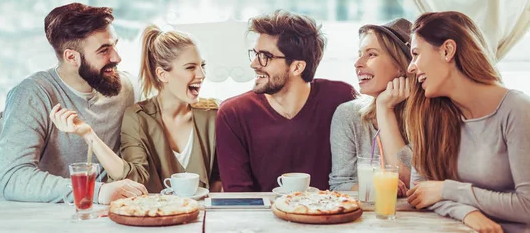
The Importance
of a Safe Space
“We can’t be brave in the big world without at least one
small safe space to work through our fears and falls.”
-Brené
Brown
Safe
spaces are environments where individuals can feel free
to express themselves without fear of judgement,
criticism or discrimination. In today's society, it is
essential that we create safe spaces that promote
wellness.
Safe spaces can help to reduce anxiety and stress. When
individuals feel safe and secure, they are more likely
to open up and share their thoughts and feelings, which
can help to alleviate symptoms of depression, anxiety
and other mental health disorders.
A safe,
accepting, and supportive space is an environment where
people feel free to express themselves without fear of
judgment or harm. Safe spaces can be physical places or
they can be groups of people. They can be essential for
people's mental and emotional health, and can help
people feel a sense of belonging and connection.
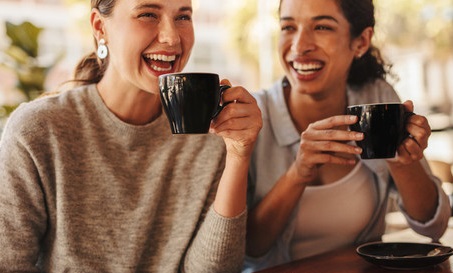
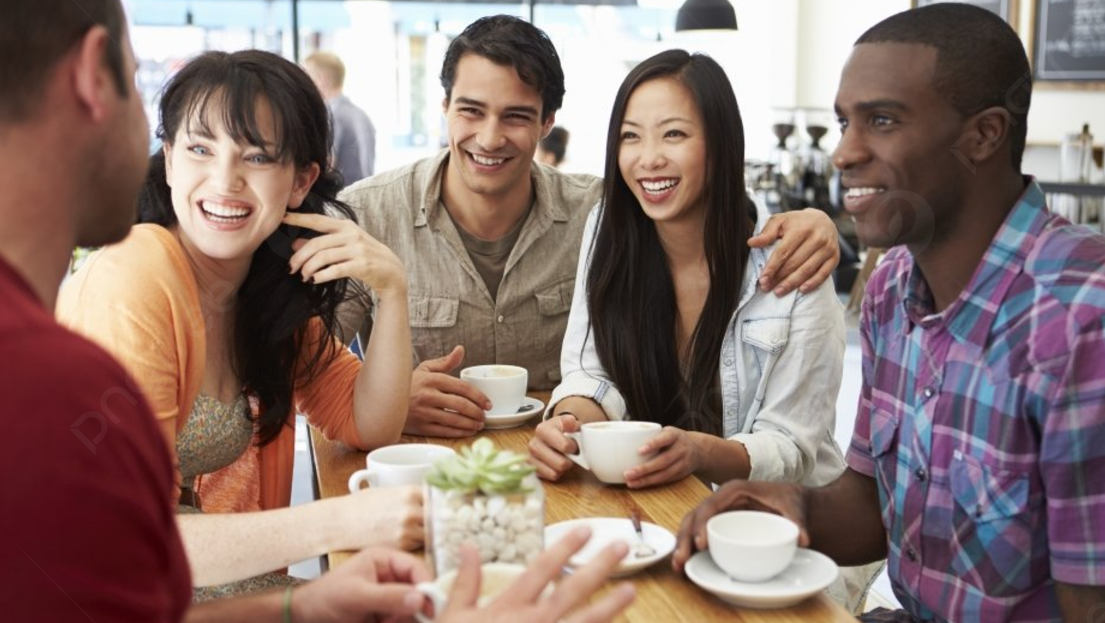
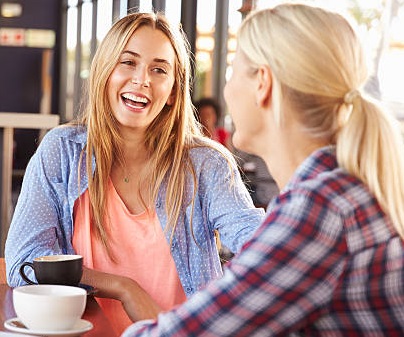
“Casual social interaction that is friendly and positive
is the first external sign that the world is a safe
place.”
-Emily Nagoski
Safe spaces provide a sense of community... Humans
are social creatures, and we thrive on social
connections. When individuals feel a sense of belonging,
they are more likely to feel supported and valued. This
can help to boost self-esteem, promote positive mental
health and reduce feelings of loneliness and isolation.
Safe spaces can help to create a sense of
empowerment.... When individuals are given a safe and
supportive environment, they have more tools to help
them feel empowered to make positive changes in their
lives. They are more likely to take risks, set goals,
and pursue their passions. By providing a safe space, we
can help individuals build their confidence and develop
the skills they need to live a fulfilling and satisfying
life.
Safe spaces can be beneficial for marginalized
individuals... These individuals may experience
discrimination, harassment or bias in their daily lives,
which can contribute to feelings of anxiety, depression
and trauma. Creating a safe environment provides these
individuals with feelings of acceptance and support. A
safe space allows them to connect with others who share
similar experiences.
It is important to note that safe spaces are not meant
to exclude or segregate individuals. Rather, they are
meant to provide a space where individuals can feel free
to be themselves without fear of judgement or
discrimination. Safe spaces should be inclusive and
welcoming to all individuals, regardless of their race,
gender, sexual orientation or other identity factors.
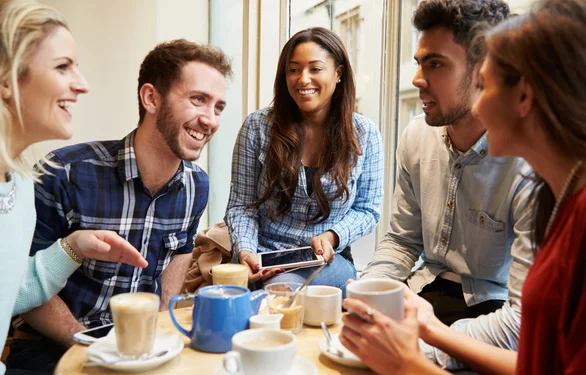

How can I create a safe space to help others?
Creating a
safe space to support someone can be done by
prioritizing their comfort, privacy, and emotional
safety. First, make sure that the environment is
physically safe and comfortable, with no distractions or
potential interruptions. Secondly, ensure that the
person's privacy and confidentiality are respected, so
they feel safe to share their thoughts and feelings.
Lastly, provide a non-judgmental and supportive
atmosphere, where the person feels heard, understood,
and validated. Encourage them to express themselves
freely, and actively listen with empathy, no judgement,
or without interrupting or trying to solve their
problems. By creating a safe space, you can help someone
feel seen, heard, and supported, which can go a long way
in improving their mental health and overall well-being.
Diner Girl
Moonlight: Diner Scene
Long Live the Queer Cafe
Big Lebowski: Enjoying My Coffee
I Know a Place by Petula
Clark
The Avengers in a Schwarma Restaurant
LGBTQ Cafe in Dominican Republic
Schitt's Creek: The Wine
and Not the Label
Cup of Tea: Bringing People Together
Casablanca: Rick's Cafe Americain
Culinary Icon James Beard:
Gay Male Julia Child
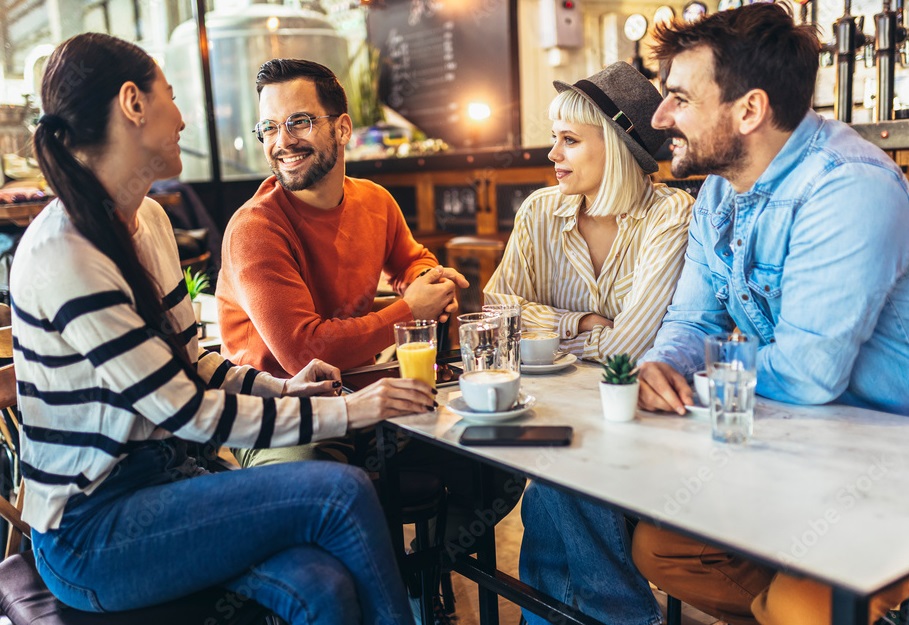
Famous Queer
Bars, Pubs, and Taverns
"If
you can't wrap your head around a bar or club as a
sanctuary,
you've probably never been afraid to hold someone's hand
in public."
-Jeramey
Kraatz
Stonewall
Inn - Christopher Street, Greenwich Village, NYC
The Pulse
Nightclub - Orlando FL
Gene
Compton's Cafeteria - San Francisco CA , Tenderloin
District
Twin Peaks
Tavern - Castro District, San Francisco CA
Swinging
Richards - Atlanta GA
The
Cubbyhole, New York City, NY
Sidetrack
- Chicago IL
The Abbey
Food & Bar, West Hollywood, Los Angeles CA
Larry's
Lounge - DuPont Circle, Washington DC
Therapy -
Hell's Kitchen NYC
Hamburger
Mary's, West Hollywood, Los Angeles CA
Bulldogs
Bar - Atlanta GA
Bourbon
Pub & Parade - Bourbon Street, New Orleans LA
Club Cafe
- Boston MA
Roundup
Saloon - Dallas TX
Al's on
Seventh - Birmingham AL
Moby Dick
- Castro District, San Francisco CA
Cubbyhole
- East Village NYC
Pecs Bar -
San Diego CA
Henrietta
Hudson Bar & Grill, New York City NY, West Village
Hunters -
Fort Lauderdale FL
Roscoe's
Tavern - Chicago IL
Pilsner
Inn - Castro District, San Francisco CA
Tribe -
Nashville TN
Duplex
Cabaret Theatre - Christopher Street, Greenwich Village,
NYC
Gym Sports
Bar, West Hollywood, Los Angeles CA
Rain on
4th -Austin TX
Q Bar -
Castro District, San Francisco CA
Our Place
- Birmingham AL
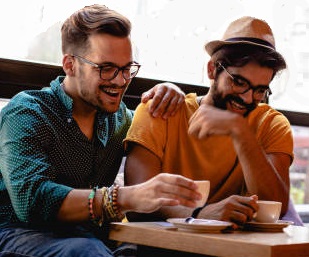
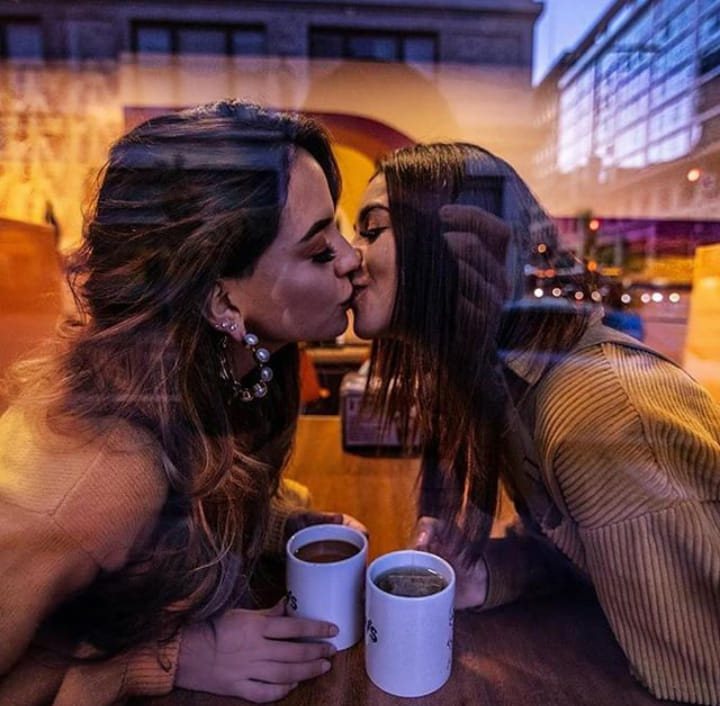
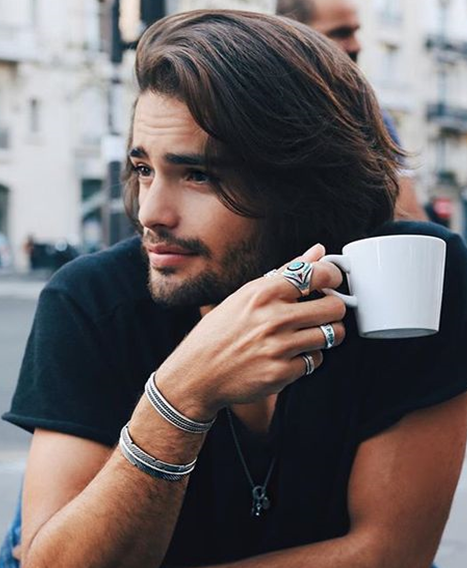
Third Place
How did
cafes and coffee houses become our home away from home?
Coffee houses have been around since people began
drinking coffee, but their cultural impact seems bigger
than ever before. According to sociologist Ray
Oldenburg, coffee houses are a kind of “third place,” an
important social setting outside of home or work. The
"third place" is defined as a neutral location which
serves as a meeting ground that is accessible to
everyone regardless of status. They are focused on
community, conversation, and creative interaction. Other
significant “third places” are bars, parks, barber
shops. Historically, neighborhood bars have served as
the “third place” on television shows. Coffee shops were
still aligned with counterculture and not considered
mainstream. Hit TV show “Cheers” took place almost
entirely within a bar. That trend began to change in the
1990s with huge shows such as “Seinfeld” and “Friends”
that placed coffee shops at their center.
Sober Queer Spaces
Gay Bars are Losing Popularity
Coffee House News
Queerest Little Coffee Shop in LA
We Need Alcohol-Free Queer Spaces
Inside the Historic Lesbian Cafes That Fed the Feminist
Movement
Queer Cafes on the Rise
Is the Gay Bar Dying?
Cafe Signs
LGBTQ Coffee Shops in Portland
Dying Gay Bars: There's a Sobering Upside
Long Live the Queer Cafe
Coffee Shops: New Concept for Queer Space
Why Are So Many Gay Bars Closing?
Info: LGBTQ Food and Restaurants
The Gay Bar Isn't Dead,
It's Just Evolving
Cuties: Queer Coffee Shop
Cafes, Bars and Diners From Film and Television
Out of the Bars and Into the Cafes
Queer Coffee
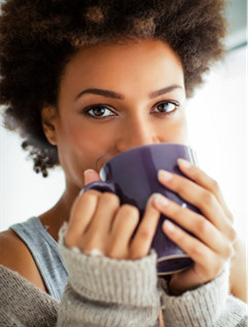
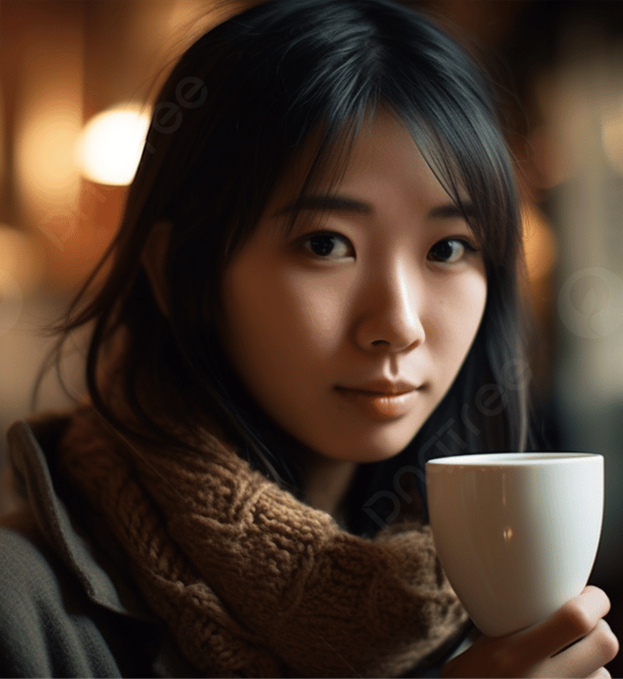
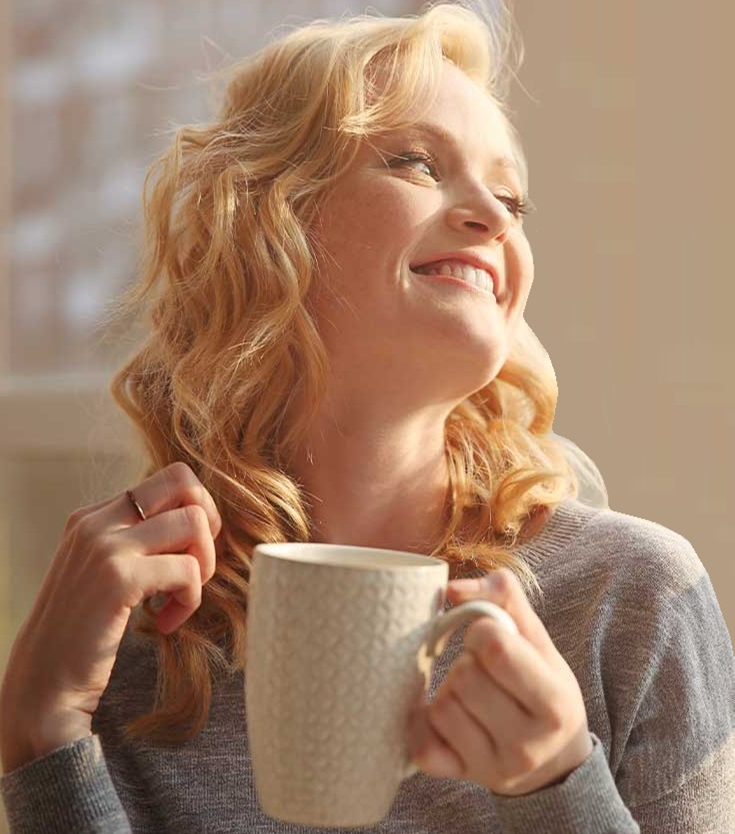
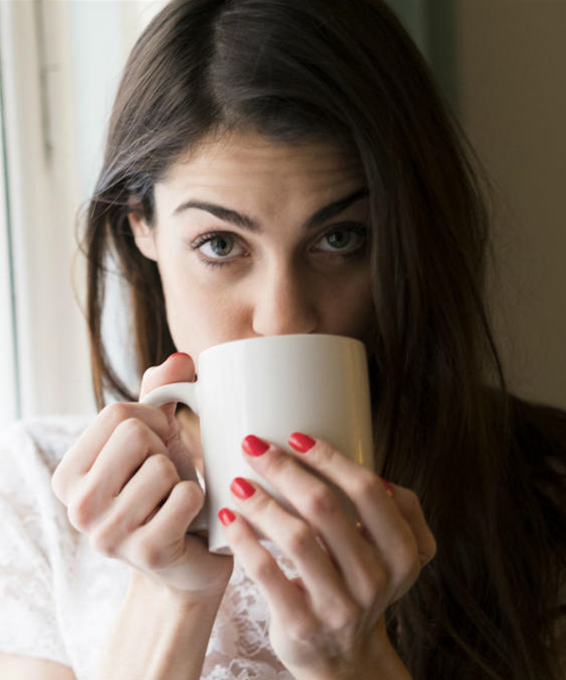
Coffee and
Inclusion
Cafe
Euphoria Serves up Equity and Inclusion Alongside Coffee
Welcome to Cafe Euphoria! If you've been looking for a
safe and welcoming place that values equity and
inclusion above all else, then this is the perfect spot.
Cafe Euphoria was designed from top-down to support
marginalized communities. The cafe was started by
members of the trans community and although it’s billed
as a safe space for LGBTQ folks. Everyone's welcome
here!
What if we opened a cafe?
Downtown Troy has the scoop on Cafe Euphoria, an eatery
located in the heart of Troy, New York. Cafe Euphoria
differs from the other cafes that dot downtown Troy’s
streets in that this unique restaurant is owned and
operated, as a collective, by members of the transgender
community.
Cafe Euphoria owes its existence to Dr. Atsushi Akera,
now the general manager at the cafe. Dr. Akera’s resume
however, has nothing to do with serving soups and
brewing coffees. She previously worked as an associate
professor and graduate program director at Rensselaer
Polytechnic Institute’s Department of Science and
Technology.
Akera saw the value of the hospitality industry in
building community. After COVID-19’s isolating effect on
the trans community, she posted on social media, “What
if we opened a cafe?” A number of other LGBTQ denizens
were intrigued by Akera’s idea, and Cafe Euphoria was
born.
“It’s always been my dream to open a cafe, and to build
community,” Akera explained. “Given the political
polarization that we currently face, and the present
assault on transgender rights, it seems all the more
important to create a safe space, one that’s built
around a principle of mutual understanding and respect,
rather than isolation.”
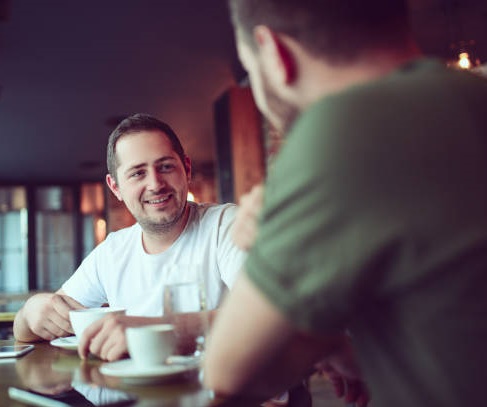
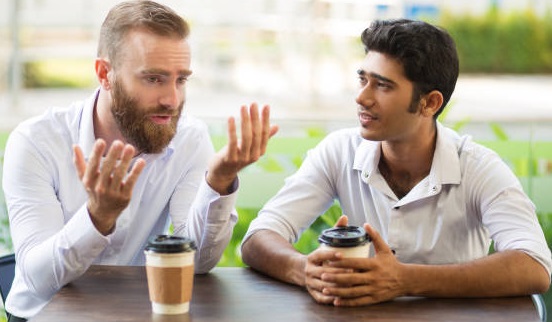
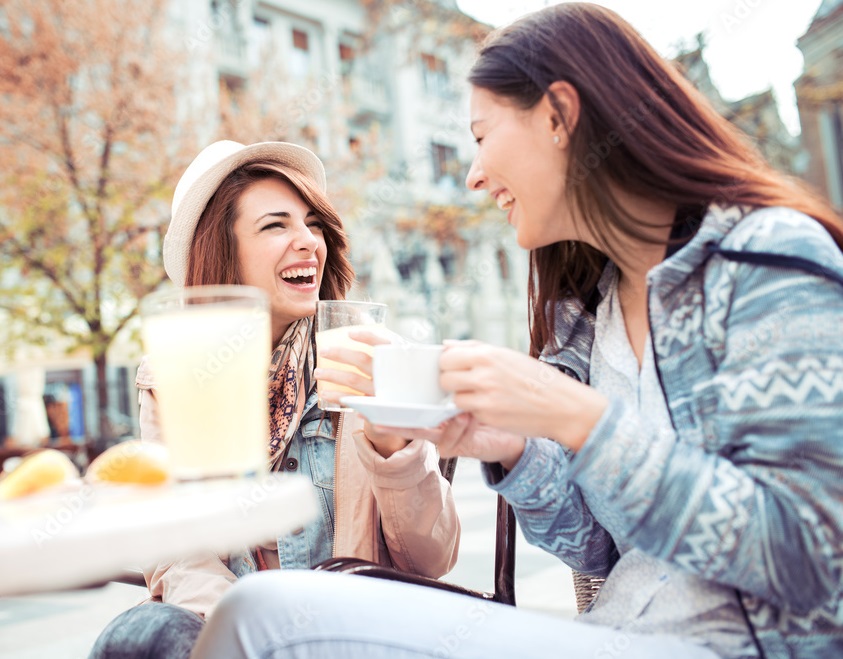
Spontaneous Singing at Central Perk
Most Popular LGBTQ Bars in US
Five Easy Pieces: Diner Scene
Info: LGBTQ Food and Restaurants
Niles Orders Coffee
Notting Hill Dinner Scene: The Last Brownie
Gay Family Refused Service in a Cafe
A safe space
The restaurant was designed not just to build community
and provide delicious food, but also as a safe space.
According to Spectrum Local News, transgender people
face discrimination at work, are paid less on average,
and have a more difficult time finding jobs. For the
trans worker collective that owns and runs Cafe
Euphoria, it’s a chance to embrace their identities
without fear of prejudice.
Tucker Hanley, Cafe Euphoria’s executive chef explains,
“At old jobs, I’ve had to hide the fact that I’m trans
for fear of losing those jobs.” At Cafe Euphoria, Hanley
will have no need to hide his identity.
Cafe Euphoria isn’t just a safe space for workers. The
restaurant is designed to promote mental health and
community for trans people and members of the LGBTQ
community. The restaurant is decked out in bright,
positive, uplifting colors. “The idea was to create a
positive space where people can hang out with friends
and work and have some of the colors so that it’s kind
of lively,” Akera explained.
On sale, alongside coffee, sandwiches, and other foods,
Cafe Euphoria will offer pre-loved clothing for sale.
Akera hopes this service will help trans people explore
their appearance in a safe and accepting location. She
tells Spectrum Local News, “Clothing is a big issue for
members of the transgender community, so the idea was to
create a safe space where folks who are in early
transition can just kind of play with clothes.”
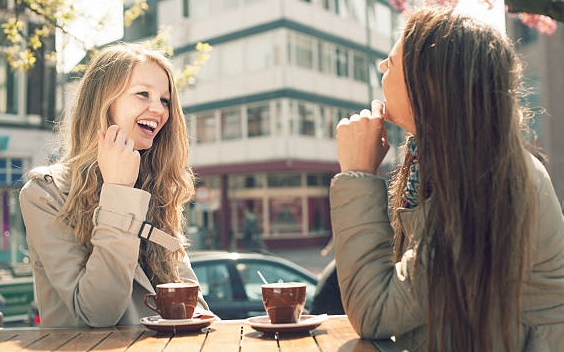
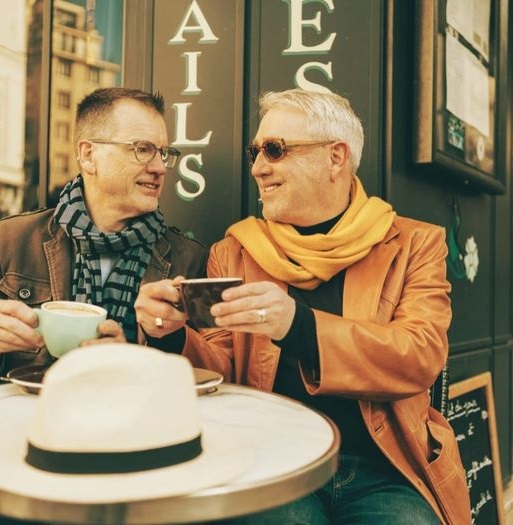
Schitt's Creek: The Wine
and Not the Label
Cheers: Too Ugly to Be Gay
Steve Working at the Peach Pit
Culinary Icon James Beard:
Gay Male Julia Child
Tea for Two: Two Strangers on a Blind Date
Long Live the Queer Cafe
Friends Hanging Out at Central Perk
Something for everyone
Cafe Euphoria doesn’t just sell clothing and coffee
though. Despite its name, it operates as a full
restaurant with a rotating menu.
Hanley shared, “We’ll be changing it four times a year
to reflect what’s in season in the area, using local
produce from local farmers and makers, because this is
ultimately a community project.” The cafe offers vegan,
vegetarian and pescatarian menu options.
Downtown Troy adds that the cafe is open for breakfast
and lunch, and is part of a trend moving away from “gay
bars” and towards “gay cafes,” that focus on community
building, in an environment not focused on alcohol.
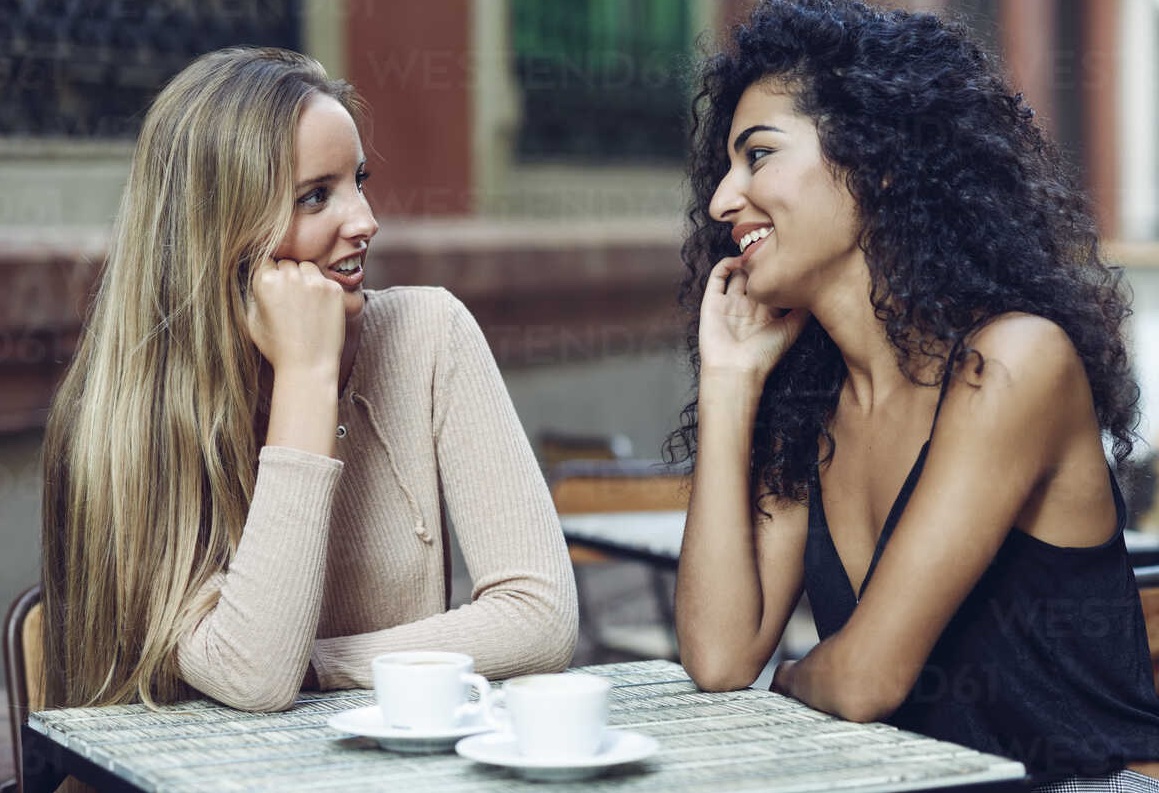

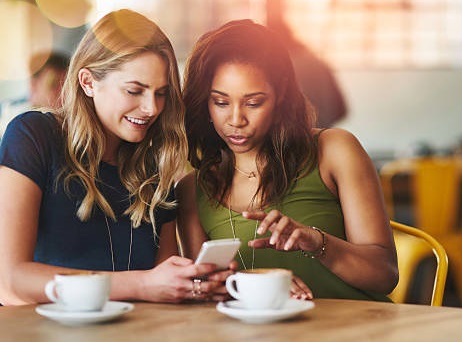
More than a business
Cafe Euphoria mission statement and LGBTQ inclusive
atmosphere isn’t the only thing that makes the
restaurant unique, however. The cafe functions as a
worker-owned collective. All the member-owners, who are
also all part of the LGBTQ community, have different
roles in running the restaurant, but they also all have
equal pay and equal input into making business
decisions.
The goal of the co-op is also radically different from
the ordinary business model. Rather than trying to turn
a profit, Cafe Euphoria’s financial goal is for the cafe
to be able to break even, while still providing its
owners with a livable wage. There’s no investors, so
there’s no profit. We push everything out in wages. So
the idea is to balance things out,” Akera explains.
Cafe Euphoria is proof that people can create a haven of
acceptance and equity. This kind of establishment
amplifies the positive change our world needs. With Cafe
Euphoria leading the charge, we can create a world where
people feel empowered to let their inner identities
shine through.
[Source: Adina Rosen, Good Dine, Feb 2023]
Two Gay Girls Singing in a Cafe
LGBTQ Cafe: Lessons on Coffee and Tea
When Harry Met Sally: Diner Scene
Most Popular LGBTQ Bars in US
New Generation of Queer Bars Are Betting on a More
Inclusive Future
Five Easy Pieces: Diner Scene
Gay Family Refused Service in a Cafe
Inside the Historic Lesbian Cafes That Fed the Feminist
Movement
Cheers: Too Ugly to Be Gay
Spontaneous Singing at Central Perk
Long Live the Queer Cafe
Moonlight: Diner Scene
Friends Hanging Out at Central Perk
Notting Hill Dinner Scene: The Last Brownie
Schitt's Creek: The Wine
and Not the Label
Culinary Icon James Beard:
Gay Male Julia Child
Niles Orders Coffee
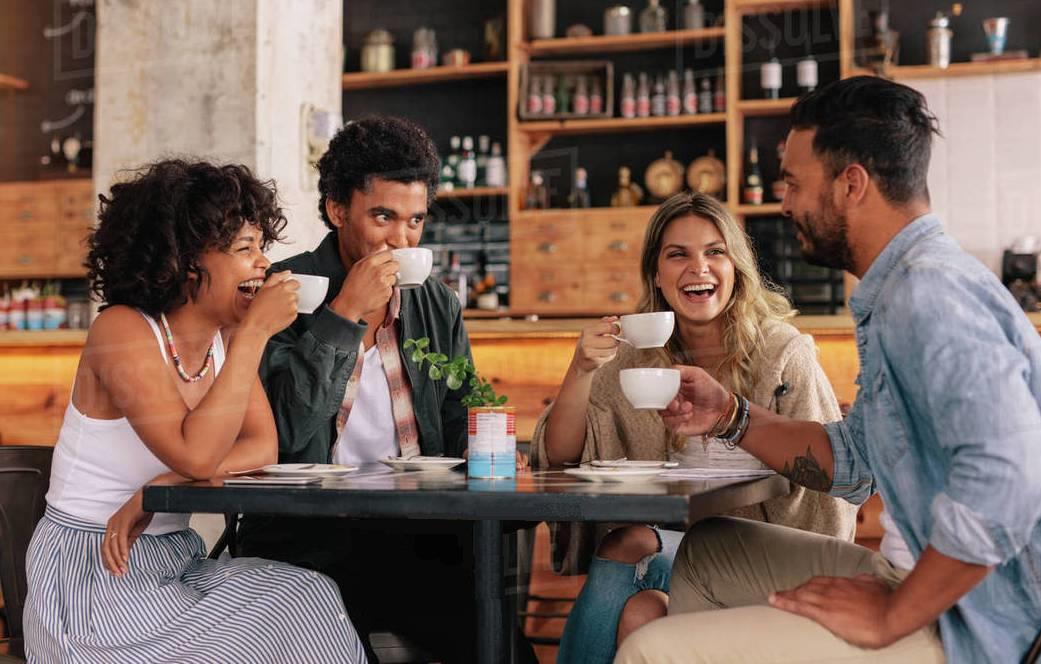
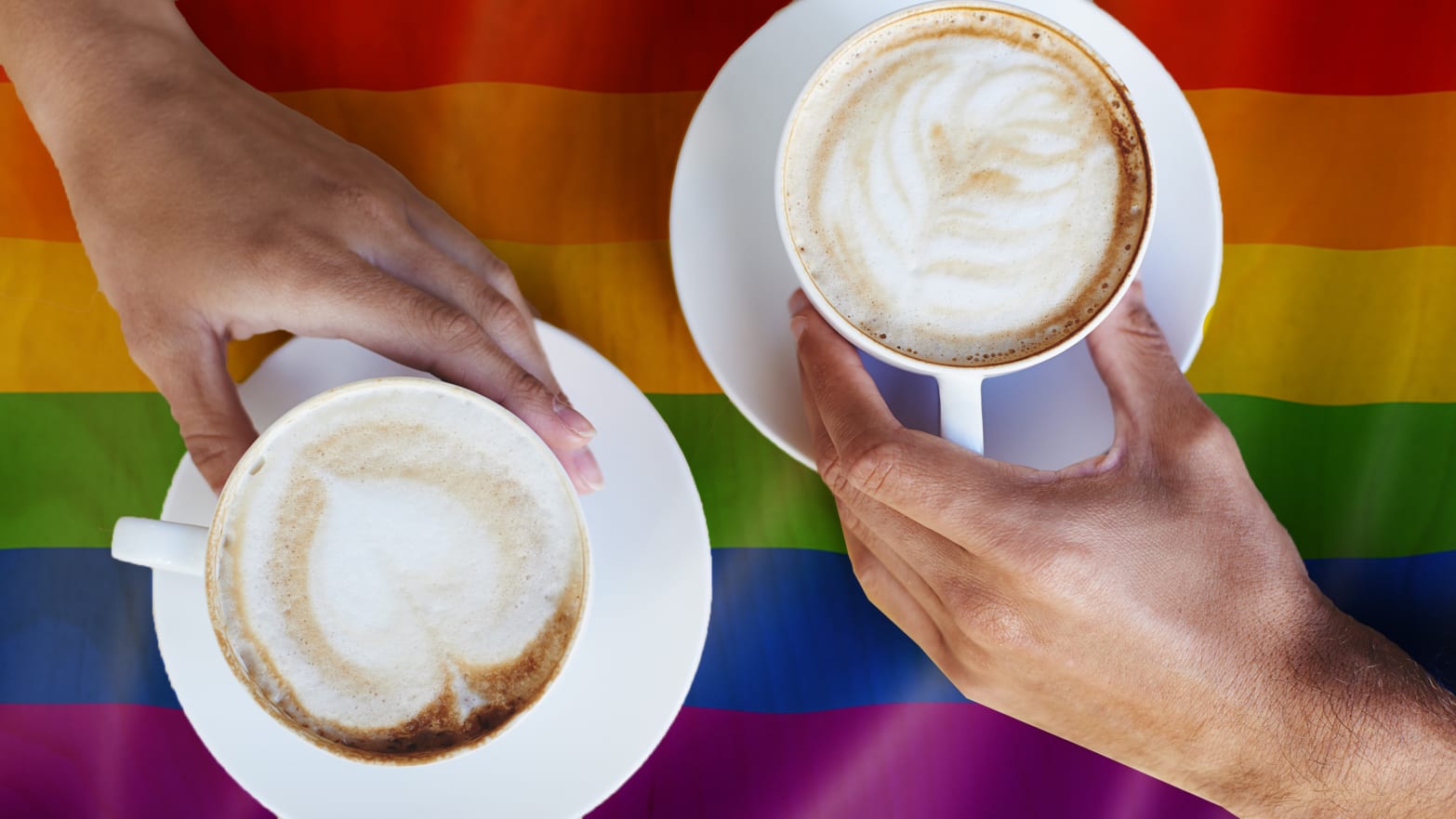
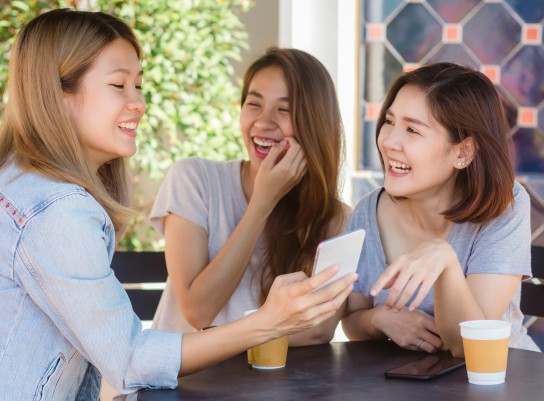
Twin Peaks
First Gay Bar With Windows
In 1972, when Mary Ellen Cunha and Peggy Forster threw
open the doors and uncovered the windows at Twin Peaks
Tavern on the corner of Castro and Market streets in San
Francisco, they didn't know they were making history.
It became the first gay bar in the nation to feature
full-length, open plate glass windows that let its
patrons look out and, more importantly, the public look
in.
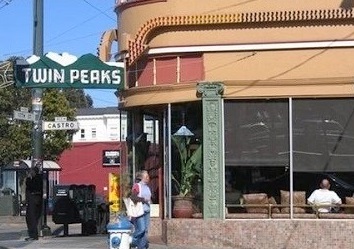
The lesbian friends, known to most regulars as "the
girls" opened the bar to the world at a time when many
gays still feared losing their jobs or being socially
ostracized if their sexual orientation was revealed.
Having attracted a more mature clientele over the years,
Twin Peaks has earned the nicknames of “God’s Waiting
Room” “The Glass Coffin” “Tomb with a View” to name a
few.
The bar has now survived for 44 years as one of the
Castro district's most memorable and welcoming
establishments, and has been at the centre of San
Francisco's LGBTQ community and equal rights movement
for over four decades.
In January 2013 it became a San Francisco Historic
Landmark.
Sober Queer Spaces
Gay Bars are Losing Popularity
Coffee House News
Queerest Little Coffee Shop in LA
We Need Alcohol-Free Queer Spaces
Inside the Historic Lesbian Cafes That Fed the Feminist
Movement
Queer Cafes on the Rise
Is the Gay Bar Dying?
Cafe Signs
LGBTQ Coffee Shops in Portland
Dying Gay Bars: There's a Sobering Upside
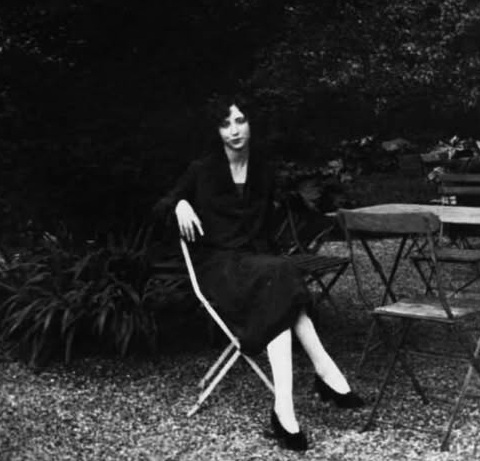
Small Cafe on
the Street
"As I
passed I saw a cafe, a cafe on the street, with an open
door, and one small round table outside, just big enough
for two persons, two glasses of wine, two small iron
chairs, a diminutive cafe…shabby, with a faded sign, a
dull window, lopsided walls, uneven roof. The smallness
of it, the intimacy of it, the humanity of its
proportion… A human being feels one can sit in such a
cafe even if one’s hair is not perfectly in place and
one’s shoes are not shined... One could sit there and
feel unique, feel in tune with the world, or out of
tune, feel human and open to human emotion... One could
sit there if one felt the world too big and too
barbaric, and feel once more in a human setting, a
proper setting for a human being… Why did I feel warmed
by imperfections, discomfort, and patina? Because
intense living leaves scars…inner scars, softened, human
wear and tear."
-Anais Nin
Long Live the Queer Cafe
Coffee Shops: New Concept for Queer Space
Why Are So Many Gay Bars Closing?
Info: LGBTQ Food and Restaurants
The Gay Bar Isn't Dead,
It's Just Evolving
Cuties: Queer Coffee Shop
Cafes, Bars and Diners From Film and Television
Out of the Bars and Into the Cafes
Queer Coffee
Where Everybody
Knows Your Name
Cafes and
coffee shops (indeed also bars, bistros, and diners) are iconic in
American media, including television, film, and music.
It is noteworthy to consider how meaningful
conversation, profound discussions, and insightful
discourse often takes place when people are gathered
around a table sharing a drink or a meal. Placing
characters and action in a bar, diner or cafe has proven
to be an effective story-telling device.
Famous Eating Places in the Media
The
central location or key meeting spot for many television
shows is a pub, tavern, or diner. Examples of eating
venues in TV series include
Alice,
How I Met
Your Mother, Friends, Cheers, Seinfeld, Pushing
Daisies, Call Me
Kat, Always
Sunny in Philadelphia, Frasier, Koji and
Kate, Happy Days, and Two Broke Girls.
There are
many films in which a pub, tavern, or diner are
featured. The venue might be the setting for the story,
as in such movies as Diner, My Dinner With Andre, Amelie,
Waitress, or Casablanca. Or it may simply be an iconic,
highly memorable scene in the movie, as in Pulp Fiction,
When Harry Met Sally, Groundhog Day, Moonlight, or LA
Story.
There are
also songs that include restaurants, diners, and cafes.
Examples include Sad Cafe
(Eagles), Scenes From an
Italian Restaurant (Billy Joel), Alice's
Restaurant (Arlo Guthrie), Bruno's Place
(Loudon Wainwright III), Diner
(Martin Sexton), I Know a
Place (Petula Clark), Cafe Society
(Al Stewart), Tom's Diner (Suzanne Vega), Mary's
Place (Bruce Springsteen), Sunset
Grille (Don Henley), The
Slant/The Diner (Ani DiFranco), and Diner
(Widespread Panic).
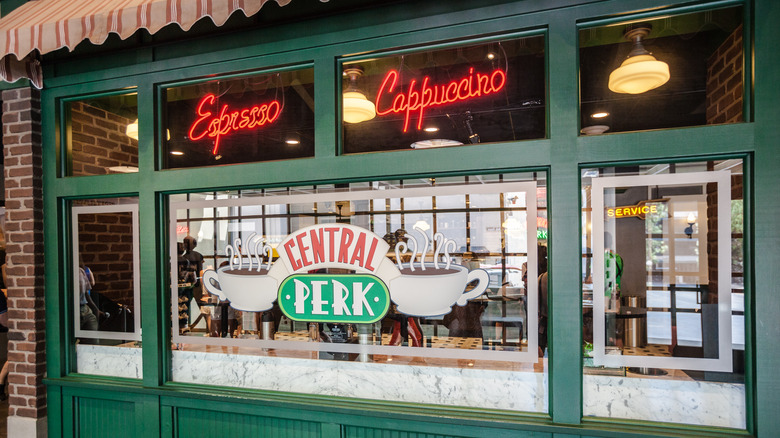
Name
the Venue
|
Duffy’s Tavern – Duffy’s
Tavern
Grant’s Toomb – The
Corner Bar
Mel's Diner - Alice
Café
Grumpy - Girls
Peach Pit
- Beverly Hills 90210
Central
Perk Coffee Shop - Friends
Cheers - Cheers
Café des
Deux Moulins - Amélie
Monk's Diner
- Seinfeld
Cafe
Nervosa - Frasier
Dorsia -
American Psycho
JJ's Diner - Parks and Recreation
Chotchkie's - Office Space
Arnold's - Happy Days
Hitching
Post - Sideways
The Pie
Hole - Pushing Daisies
Fells
Point Diner - Diner
101 Coffee
Shop - Swingers

|
The Brick
Saloon - Northern Exposure
Paddy's
Pub - Always Sunny in Philadelphia
L Street
Tavern - Good Will Hunting
Luke's Diner - Gilmore Girls
MacLaren's Pub - How I Met Your Mother
P.J.
Clarke's - Mad Men
Katz’s Delicatessen - When Harry Met Sally
Chubbie’s - Boy Meets World
Tip Top
Cafe - Groundhog Day
Bait Shop
- The OC
Williamsburg Bar - Two Broke Girls
Pat &
Lorraine’s Coffee Shop - Reservoir Dogs
Johnie's
Coffee Shop - Big Lebowski
Joe's Bar
- Grey's Anatomy
Rear
Window Brew - Pretty Little Liars
Double R
Diner - Twin Peaks
Soul Food
Cafe - The Blues Brothers
Moe's Bar
- Simpsons

|
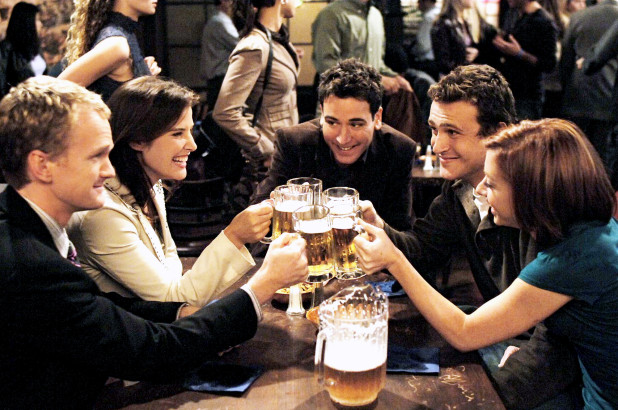
|
Los Pollos
Hermanos - Breaking Bad
Three Broomsticks - Harry Potter series
Hog's Head – Harry Potter series
Mos Eisley Cantina - Star Wars
Iron Horse - Freaks and Geeks
Rick's Café Américain - Casablanca
Crashdown Cafe - Roswell
Merlotte's - True Blood
Vesuvio - The Sopranos
The Max - Saved by the Bell
The Tropicana - I Love Lucy
The Bronze - Buffy the Vampire Slayer
Freddy's BBQ Joint - House of Cards
The Raven - Raiders of the Lost Ark

|
Blarneys Irish Pub –
Two Broke Girls
Copacabana – Goodfellas
Founding Fathers – Bones
Gaston's – Beauty and the Beast
Golden Lion – Doc Martin
Green Dragon – The Lord of the Rings
The Hip Joint – Futurama
Kelcy's – All in the Family
Leaky Cauldron – Harry Potter series
Milk – The L Word
Regal Beagle – Three's Company
Rosie's Bar – M*A*S*H
Shooters – Melrose Place
Silver Dollar Saloon – Bonanza

|
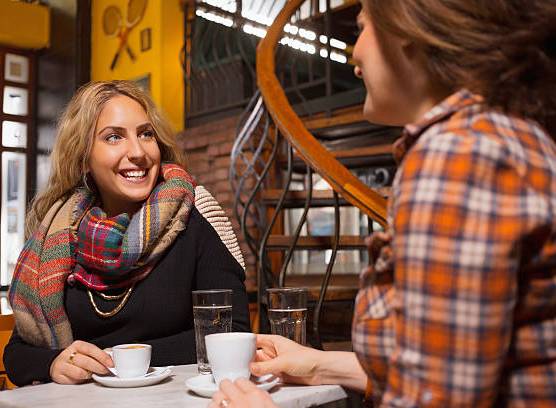
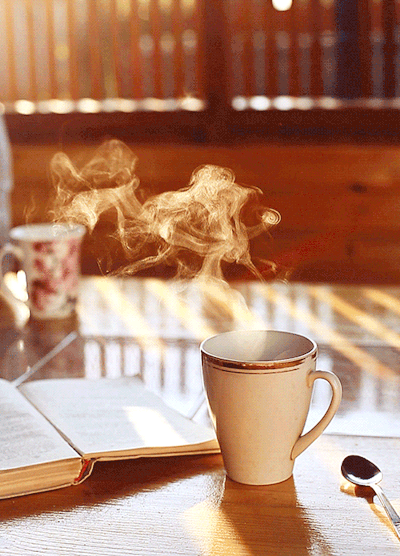
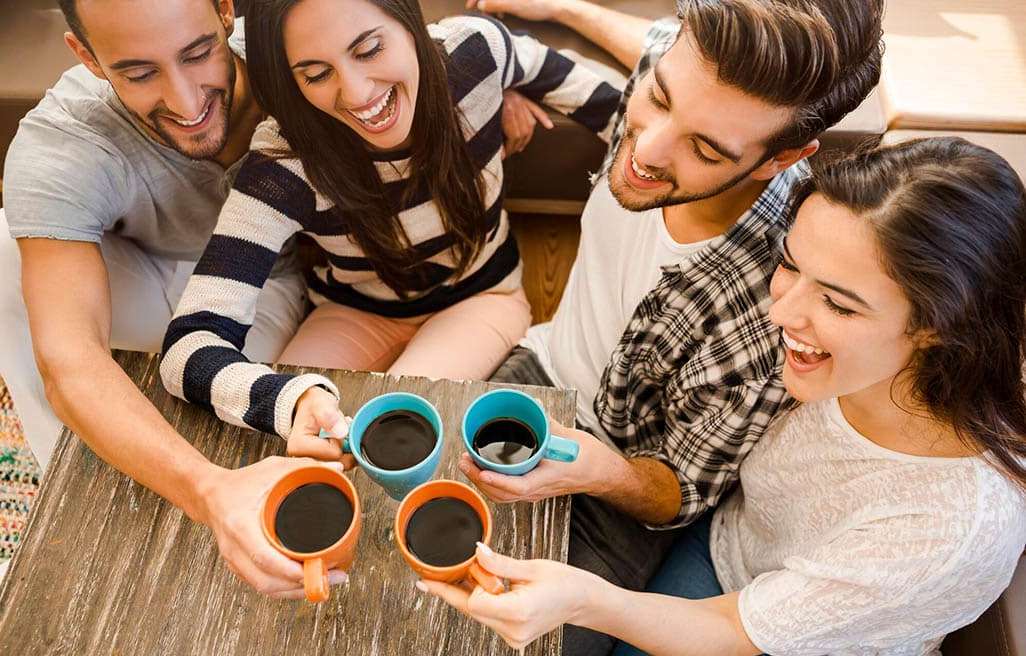
Cafe and Coffee House Culture
Spontaneous Singing at Central Perk
Function and Design of Cafes Throughout Time
Coffee House News
Movies With Diner Scenes
Coffee Culture and Socializing
Steve Working at the Peach Pit
Amazing TV Show Hangout Spots We Wish
Were Real
Social Dynamics of Coffee Shops
Cafes, Bars and Diners From Film and Television
Notes on Coffee Houses
Memorable Diner Scenes in Movies
Energy Boost and Social Atmosphere
Social Dynamics of Coffee Shops
Niles Orders Coffee
Cafe Signs
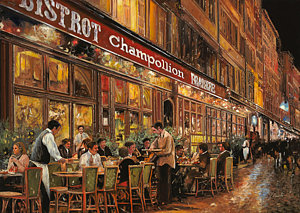
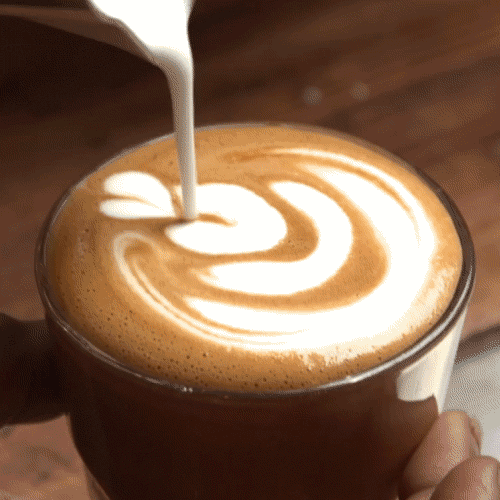
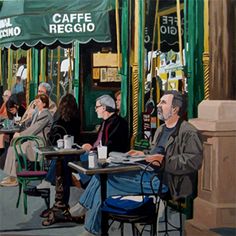
LGBTQ Safe
Spaces
New York LGBTQ
Cafes Bars Restaurants
Chicago LGBTQ
Cafes Bars Restaurants
Orlando LGBTQ Cafes Bars Restaurants
San Diego LGBTQ Cafes Bars Restaurants
News Orleans LGBTQ
Cafes Bars Restaurants
Sydney LGBTQ
Cafes Bars Restaurants
Tallahassee LGBTQ
Cafes Bars Restaurants
Detroit
LGBTQ
Cafes Bars Restaurants
Atlanta
LGBTQ
Cafes Bars Restaurants
London LGBTQ
Cafes Bars Restaurants
Houston LGBTQ
Cafes Bars Restaurants
St. Louis LGBTQ
Cafes Bars Restaurants
Toronto LGBTQ
Cafes Bars Restaurants
Birmingham
LGBTQ Cafes Bars Restaurants
Harlem LGBTQ
Cafes Bars Restaurants
Tokyo LGBTQ
Cafes Bars Restaurants
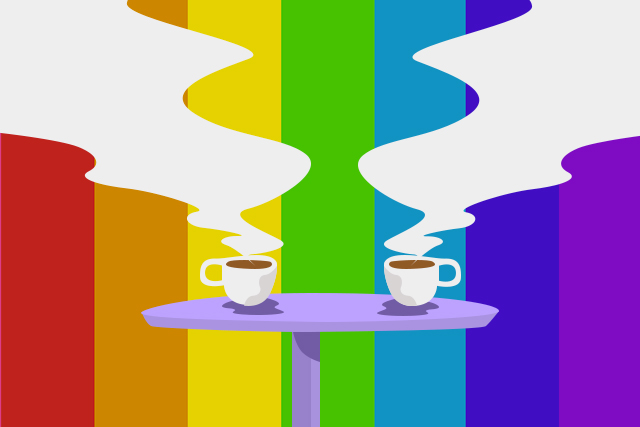
Cafes Versus Bars
"Can there
be something like gay cafés, libraries, and frozen
yogurt shops, instead of only gay bars and nightclubs?
There’s no reason why our safe spaces should only be
surrounded by alcohol and loud music, because that’s not
a safe space for everyone."
-Blue
Ajax, 2019
"We need more LGBTQ spaces outside of bars and
nightclubs, which typically translates to queer
libraries, frozen yogurt shops, and, naturally, cafés.
These places, the argument goes, are inherently more
inclusive and accessible than their nocturnal
alternatives. The simple truth is that spaces focused on
sex and alcohol (as important as they have been and
continue to be for queer survival) are always going to
be somewhat exclusionary."
-Samantha
Allen, Daily Beast, 2018
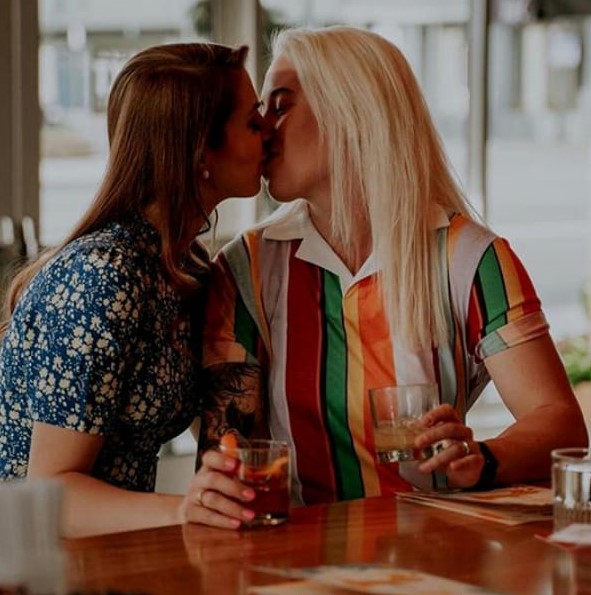
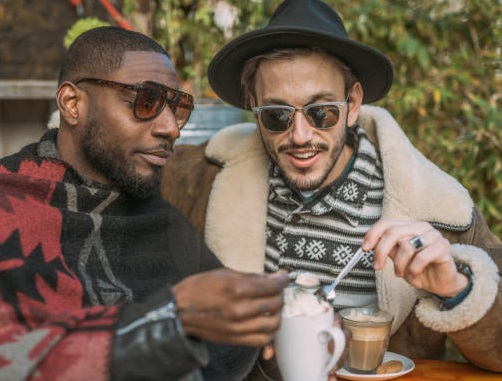
"So if the
café discourse people are already gradually getting what
they want, why is this still a thing? What’s driving
arguments against the supposed hypersexuality, danger,
and inebriation of our (remaining) nightlife spaces?
Should queer culture trade disco balls for decaf lattes
in the name of inclusion? The roots of it aren’t hard to
identify: The main goal of queer activism for two
decades was marriage equality, and now we’ve won it. So
much of the public relations that got us to this point
were predicated on the idea that queer people, queer
love, and queer culture were exactly like the
respectable, heterosexual versions of those things.
Certainly, there are many queer people for whom that
rings true, but it’s not the case for many others. Even
so, it sometimes feels like the dignified mood of the
marriage equality push has seeped into the broader queer
culture, such that forms of queer life that don’t
conform to it feel suspect, retrograde, or unwelcome.
It’s this impulse to respectability that I think much of
the café discourse is coming from. But what’s
interesting about it is that, because outright moral
scolding is uncool, arguments are instead made under the
banner of inclusivity. The nightlife scene, this logic
has it, is bad because it is exclusive of people in
problematic ways."
-James Factora, Slate, 2019
"Someone
needs to start a queer cafe. Like a gay bar but instead
of alcohol and strippers. Puns and rainbow themed foods,
beanbags in one corner, chill music, just a warm, safe
place for LGBTQ minors to hangout and go on dates
without paying too much or fearing for their safety."
-Zoe M,
2018
"There
should be LGBTQ coffee houses or bookstores instead of
just dance clubs and gay bars. So minors could have a
safe place to meet fellow family. And it would
lower alcoholism in the LGBTQ community."
-Facebook
Meme, 2020
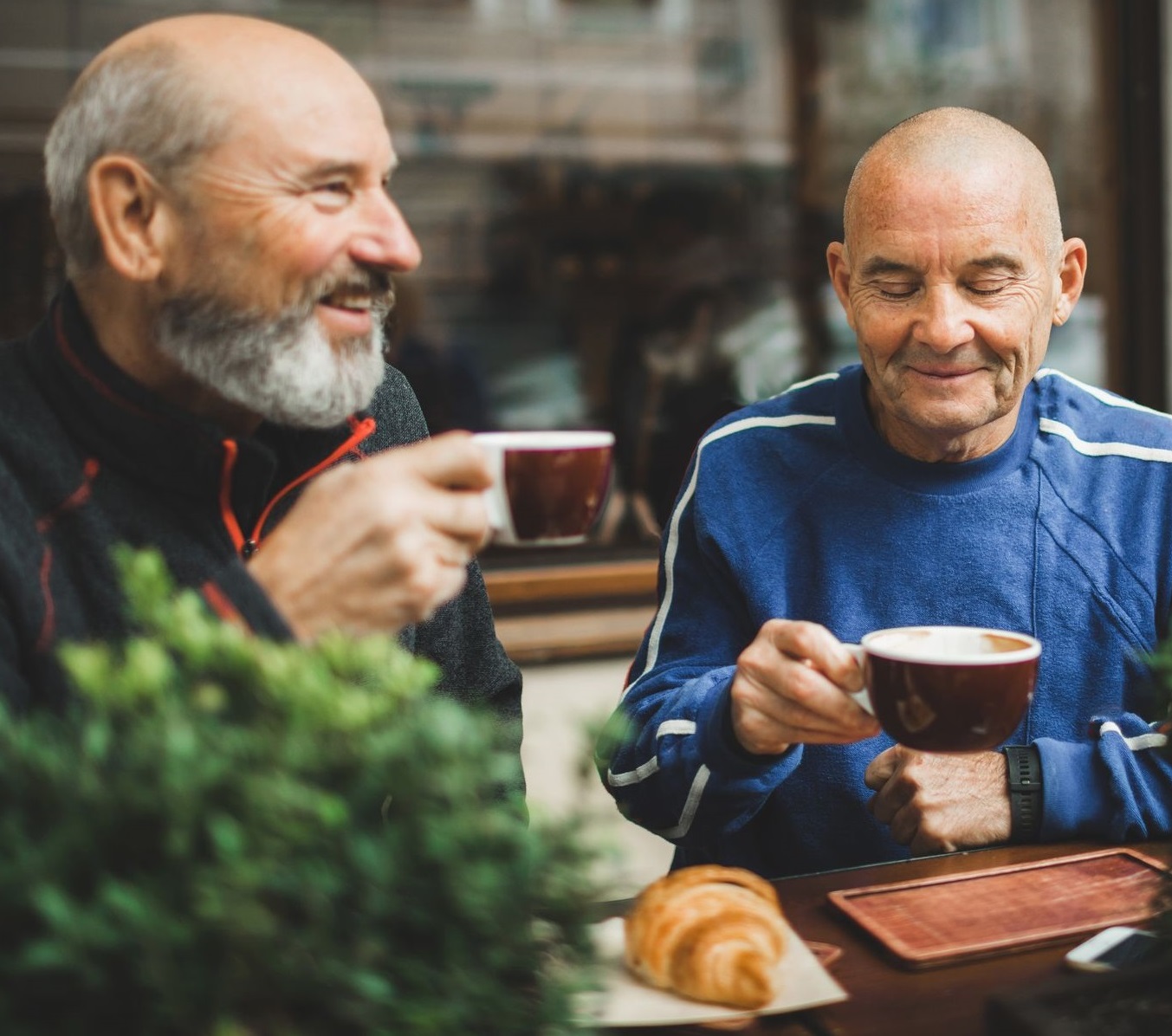
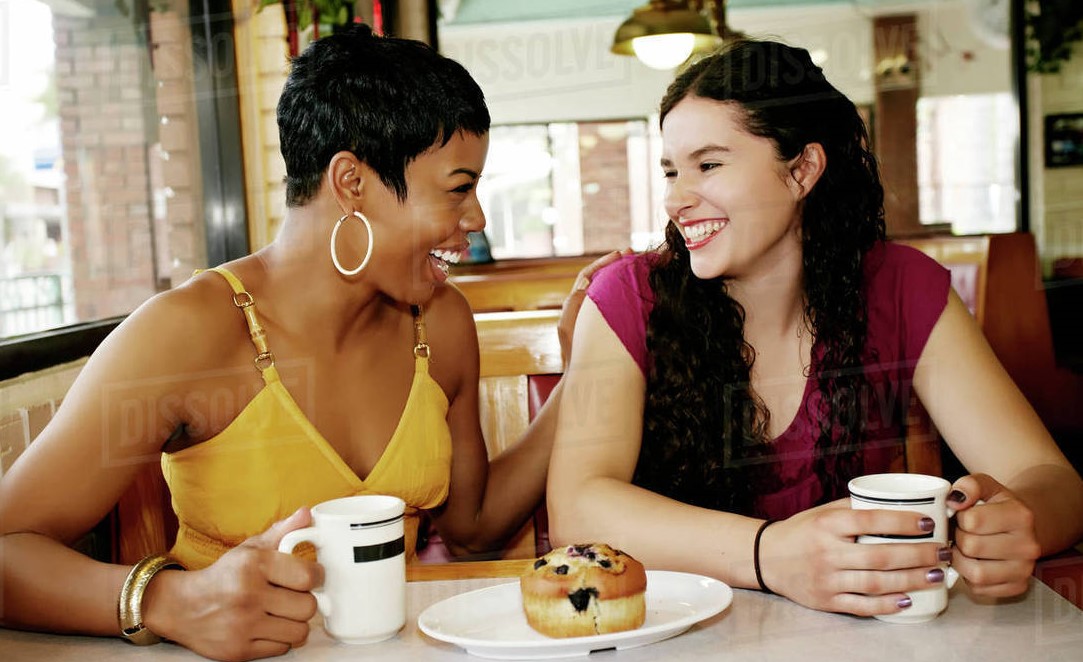
Sober Queer Spaces
Gay Bars are Losing Popularity
Niles Orders Coffee
New Generation of Queer Bars Are Betting on a More
Inclusive Future
Dying Gay Bars: There's a Sobering Upside
Quieter Queer Spaces are Worth Protecting
Too
Queerest Little Coffee Shop in LA
We Need Alcohol-Free Queer Spaces
Queer Cafes on the Rise
Sober Queer Spaces Are Giving LGBTQ
People a Place to Just Be
Rise of the Sober Queer
Is the Gay Bar Dying?
Cafe Signs
Sober Spaces for LGBTQ People
LGBTQ Coffee Shops in Portland
Long Live the Queer Cafe
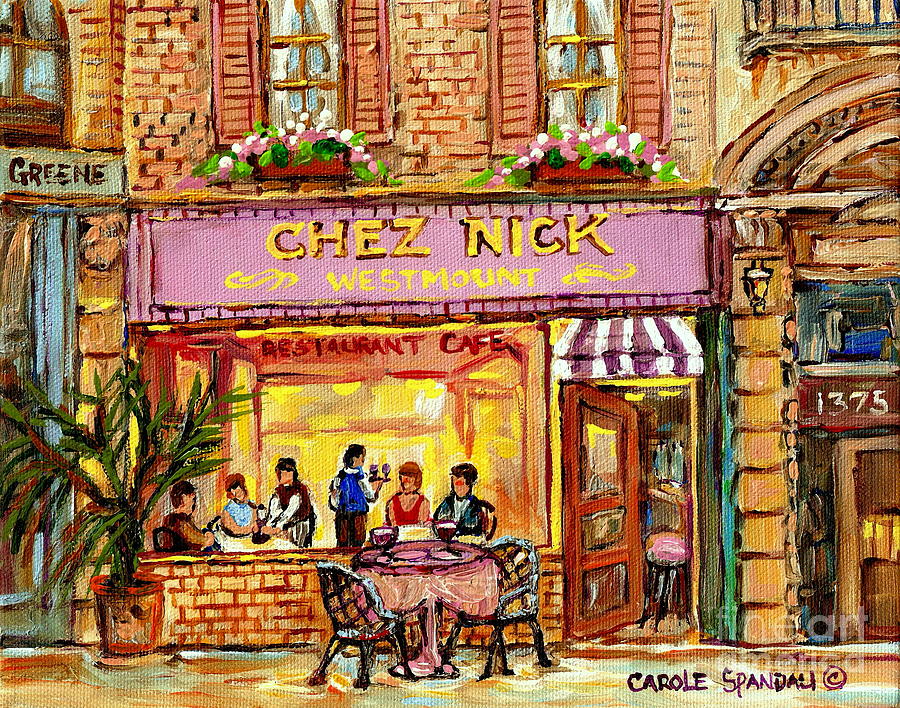
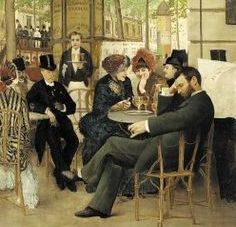
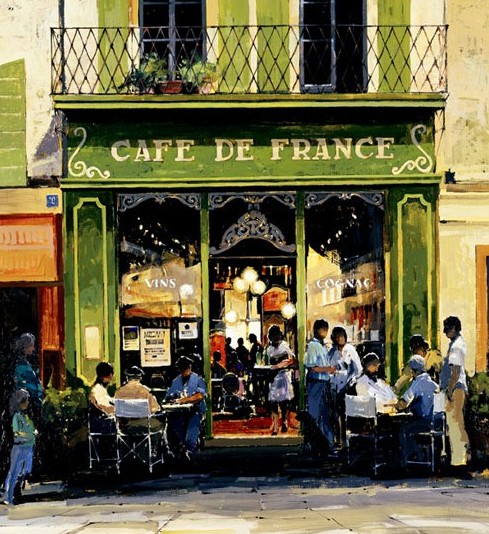
Salon Culture
Dinner and
Discussion
A salon is
a gathering of people in the home of an inspiring host
or in a public café, held partly to amuse one another
and partly to refine the taste and increase the
knowledge of the participants through conversation. They
feature food and drink along with deep intellectual and
political discussions. For more than just socializing,
they are a forum, piazza, or town hall.
Salons were invented in Italy in the 16th century and
flourished in France in the 17th and 18th centuries.
Salons in the tradition of the French literary and
philosophical movements of the time were carried on
until as recently as the 1940s in urban settings.
You can gain insight into these intellectual and
literary salons by reading Ernest Hemingway’s book, A
Moveable Feast in which he talks about time he spent at
the Paris home of the premiere lesbian couple, Gertrude
Stein and Alice B. Toklas, who hosted regular
get-togethers in the 1920s.
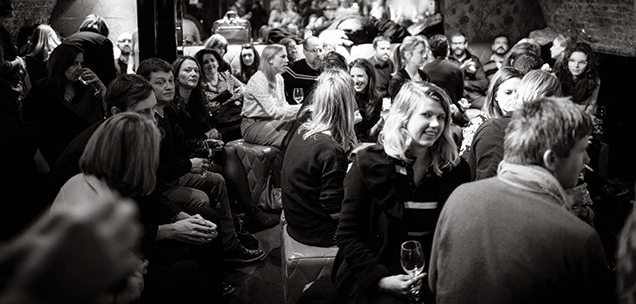
Salon: Intellectual Gathering
Long Live the Queer Cafe
Algonquin Round Table
Modern Intellectual and Literary Salons
Social Dynamics of Coffee Shops
Gertrude Stein's Paris Salons
Salon Culture: Network of Ideas
Inside the Historic Lesbian Cafes That Fed the Feminist
Movement
Coffee House News
The
Stein-Toklas salons, at 27 Rue de Fluerus in Paris,
featured the "Lost Generation" of poets, writers,
painters, sculptors, and political figures. Their guests
included such iconic folks as Picasso, Cezanne, Matisse,
Thornton Wilder, James Joyce, F. Scott Fitzgerald, and
Ernest Hemingway. To have a piece of your art displayed
there was a validation of your place among the most
relevant artists of the time. A standing invitation to
attend was the equivalent of inclusion on a modern day
who’s who list.
Dorothy Parker's Algonquin Round Table in New York City
was another famous intellectual and literary salon. It
was a group of writers, critics, actors, and wits. The
members of "The Vicious Circle", as they dubbed
themselves, gathered for lunch each day at the Algonquin
Hotel from 1919 until 1929. At these luncheons they
engaged in wisecracks, wordplay, and witticisms that,
through the newspaper columns of Round Table members,
were disseminated across the country. Guests included
Robert Benchley, Harpo Marx, Noel Coward, Tallulah
Bankhead, Franklin Pierce Adams, Marc Connelly, Heywood
Broun, Ruth Hale, Harold Ross, Frank Sullivan, and
others.
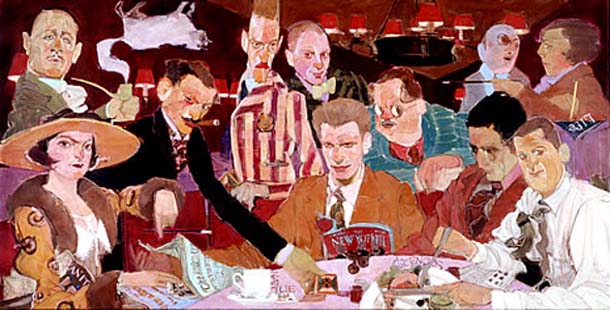
These
multidisciplinary gatherings of interesting and
thoughtful people offer exposure to
new ideas, powerful questions, and learning outside of
the confines of classroom education. They offer an
opportunity to expound, opine, and debate. They address
current events, important issues, and profound ideas.
They inspire. They ask big questions.
For a new generation of LGBTQ people, salons might
suggest the model for a new and rising notion of the
queer café. There is a variety of options: an intimate
dinner party in someone's home, an after-work meeting of
colleagues at a local pub, or a gathering of friends at
a quaint coffee shop. Quite different from the gay bar experience,
this coffee house concept offers a quieter, more subdued
venue for LGBTQ folks to gather and connect at a more
personal and philosophical level. Considering possible
alternatives to the gay bar scene, there has been some
discussion in the queer community about the growing need
for inclusive and affirming places to gather for
friendly interaction and deep conversation.
Coffee Shops: New Concept for Queer Space
Amazing TV Show Hangout Spots We Wish
Were Real
Why Are So Many Gay Bars Closing?
Coffee House News
Inside the Historic Lesbian Cafes That Fed the Feminist
Movement
Spontaneous Singing at Central Perk
Queer Friendly Cafes, Bookstores, Restaurants, and More
The Gay Bar Isn't Dead,
It's Just Evolving
Cuties: Queer Coffee Shop
New Generation of Queer Bars Are Betting
on a More Inclusive Future
Out of the Bars and Into the Cafes
Cafe for Sober Queer Introverts
Queer Coffee
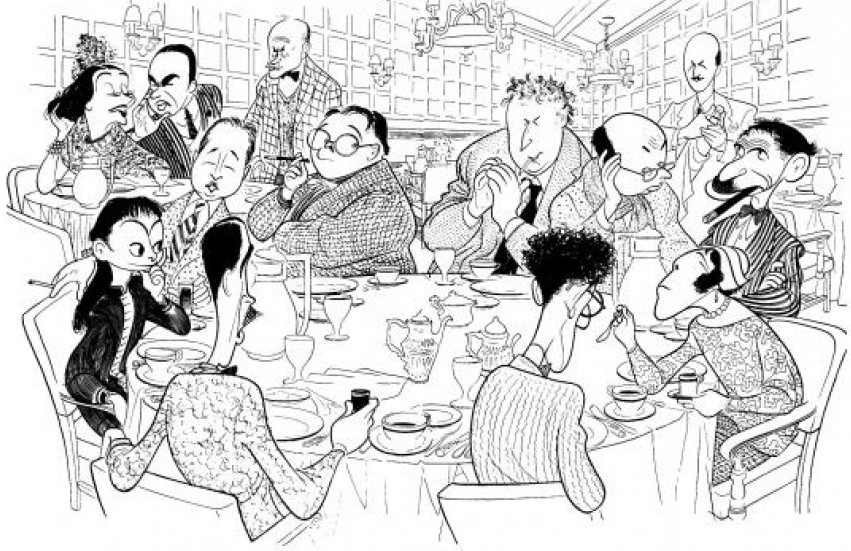
Inside That
Little Coffee Shop
There’s a little coffee shop
Down an avenue, I like to walk.
It smells like I imagine you still do,
Inside that little coffee shop.
That little coffee shop is where we used to go
When life was good and happy.
We didn’t have a care in the world,
Inside that little coffee shop.
Looking back on that little coffee shop,
It still amazes me how much things have changed.
I would never have imagined that you could hurt me like
this
Inside that little coffee shop.
That little coffee shop still feels like home to me,
Its warm fire still makes me glow.
But it will never be the same without you
Inside that little coffee shop.
In that coffee shop is where you first showed me
How it truly felt to be loved.
I would never have realized that your love would lead to
this,
Inside that little coffee shop.
As I walk past that little coffee shop
I am hit, again and again, with the familiarity that our
love is over.
I walk past in the knowledge that I will never see you
again
Inside that little coffee shop.
That little coffee shop will always be my home for you,
Its where my memories of you
Have laid to rest. It will always be
Inside that little coffee shop.
-Emma,
April 2019
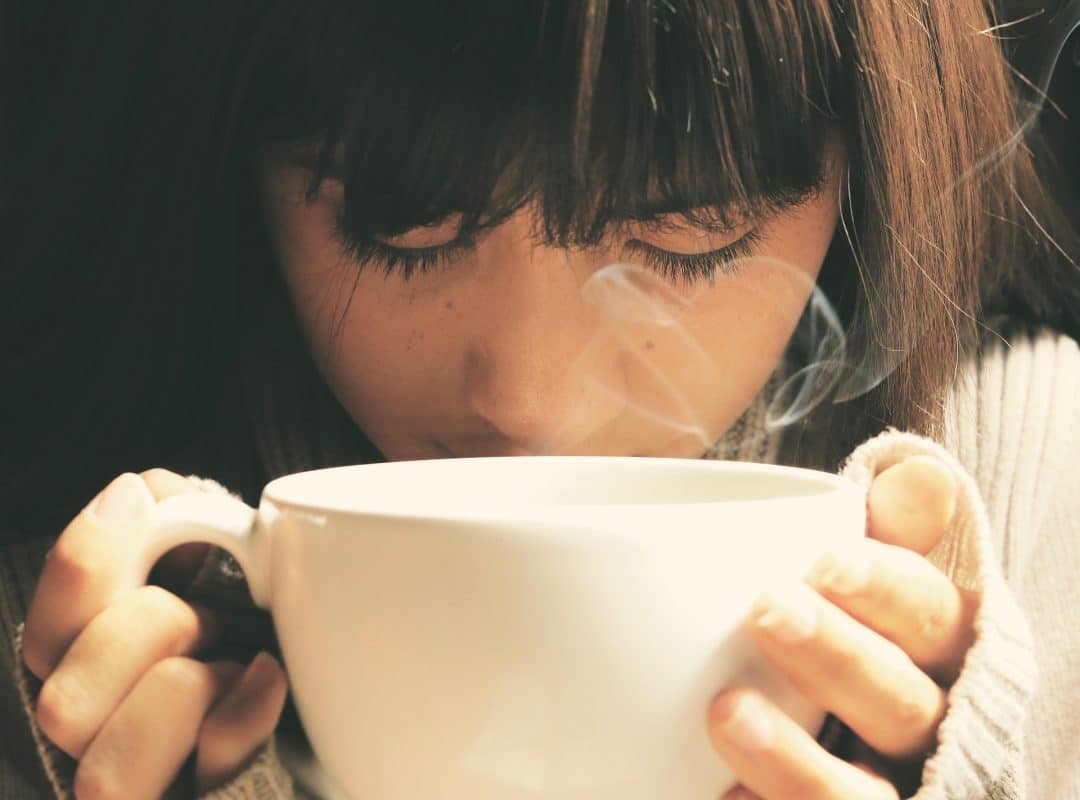
LGBTQ Interest
Groups
LGBTQ Meet Up Social Groups Worldwide
Lesbian and Gay Meet Up Friends Groups Worldwide
Meet Up
Gay Professionals Group
Meet Up Lesbian Professionals Group
Iconic Diner and
Dinner Scenes
Notting Hill: The
Last Brownie Contest
A single brownie acts as a catalyst for one of the most
insightful scenes of this movie. In this lighthearted
competition for the last brownie at a dinner party,
several of the characters, including the two principal
ones, Anna and William, open up a bit and the audience
gets interesting tidbits about the characters’ pasts
and/or a better sense of how each character views the
world and their own futures. Julia Roberts’ character in
particular, Anna, steals the show in this scene, with
her surprising candor, as she competes for the saddest
story to get the brownie. Anna admits to being a victim
of physical abuse in a past romantic relationship and to
having multiple plastic surgeries. Her
mini-reality-check speech shows that there is a dark
side to being the most famous actress in the world. And
it all starts with a brownie and Anna’s admission that
she has been on a diet for the past decade.
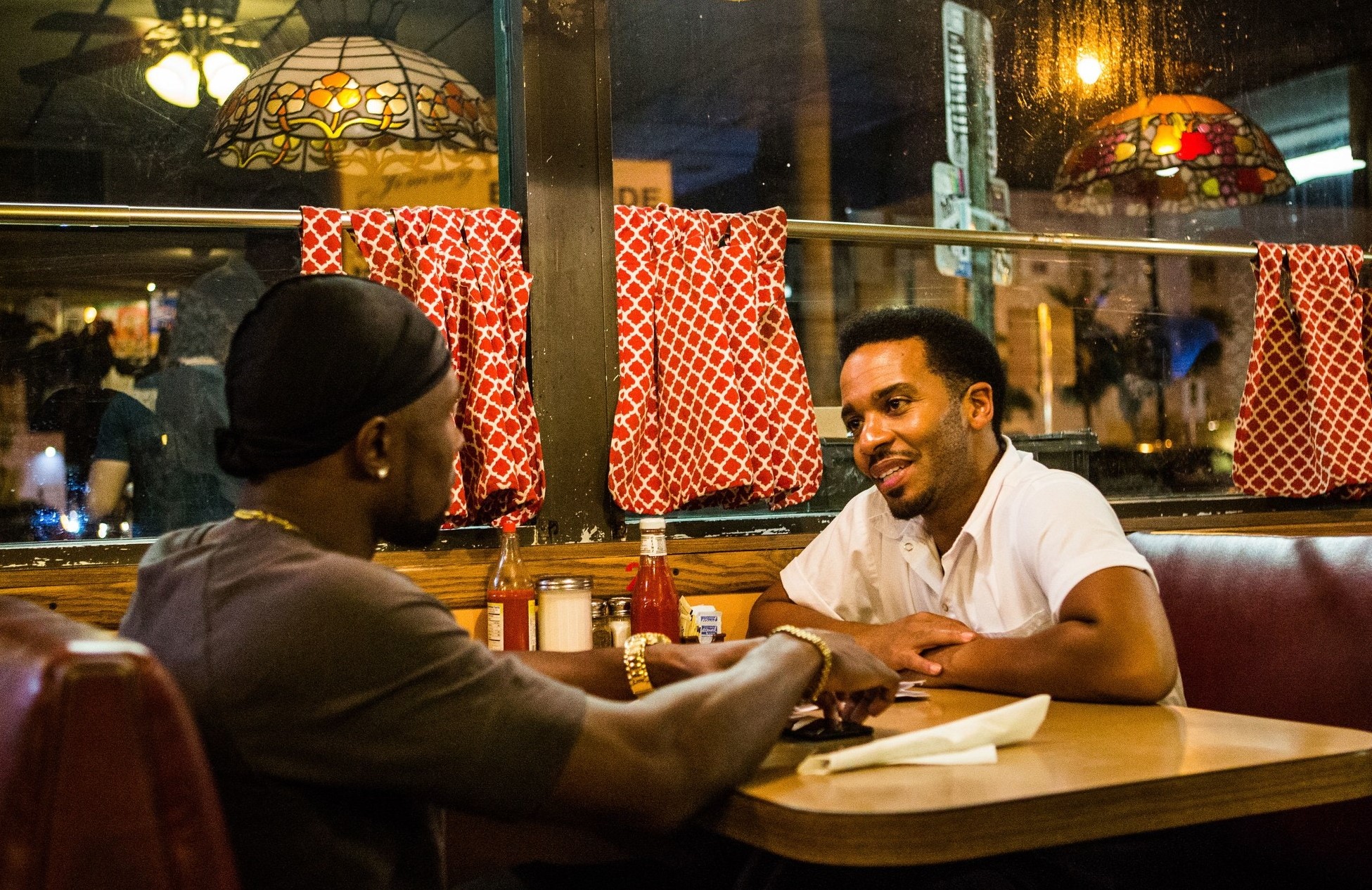
Moonlight: The Diner Scene
This is simply the most exquisite scene in film--not the
most exquisite scene in this film, but in the medium of
film. Not much dialogue, which is consistent with the
way this coming-of-age love story is told. Every facial
expression, sound, and camera angle (à la Spike Lee) is
used purposefully. This scene could have been its own
short film. Kevin (Andre Holland) and Black (Trevante
Rhodes) sit in the diner becoming reacquainted with one
another, holding the entire time that there is no one
else on this planet that know them better than they know
each other, and there is nowhere else in the universe
they would rather be, than in this diner, at this very
moment. They are courting and flirting. Although both
are nervous and pretending to be comfortable, joy and
anticipation seep through their pores. It just feels
right. From the gulping of the wine to the Cuban meal
prepared with such sedulous hands, to the faint sound of
the beach when the diner door opens. Everything is
right, for once.
Sideways: The Pinot Noir Speech
It’s easy to gloss over that whole "list of favorites"
part of any getting-to-know-you sort of conversation.
Things like favorite colors, food and leisure activities
seem so boilerplate to mention that they often get lost
among other topics of small talk, like the weather. The
great thing about Paul Giamatti’s Pinot Noir wine
monologue is that it takes what would normally be a
banal first date conversation and magnifies it to show
us just how something as small a preference in wine type
can be significant. The way Giamatti’s character, Miles,
speaks so passionately about this one wine varietal,
tells us far more about Miles than it does about the
wine. His wine monologue also reveals to us how Miles
loves and, more importantly, how he’d like to be loved.
Like the grape he describes, Miles is "temperamental"
and craves the "constant care and attention" that only
"the most patient and nurturing of growers" could
provide.
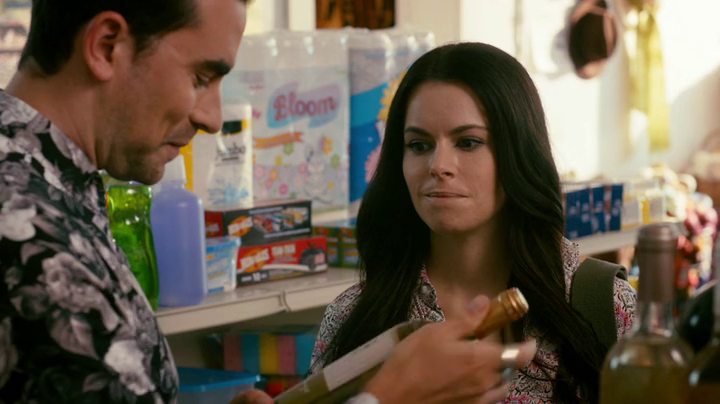
Schitt's Creek: The Wine Analogy
In an episode from
Schitt's Creek's first season, David Rose (Dan Levy)
tries to explain his sexuality to Stevie Budd (Emily
Hampshire). Using a wine analogy, David, who is
pansexual, talks about drinking red and white wine. "So,
just to be clear, I'm a red wine drinker," Stevie
begins. "I only drink red wine. And, up until last
night, I was under the impression that you too only
drank red wine." David responds, saying, "I do
drink red wine. But I also drink white wine. And I have
been known to sample the occasional rose. And a couple
of summers back I tried a merlot that used to be a
chardonnay." Stevie sums up, "So, you're just
really open to all wines." And David concludes, "I
like the wine and not the label."
When Harry
Met Sally: Diner Scene
“Are you okay?” Harry asks Sally as she starts moaning
across the table from him at a crowded New York deli.
Billy Crystal’s character doesn’t know it yet, but his
best friend (played by Meg Ryan) is about to win an
argument in an unusual way. “Oh, God,” Sally says,
running her hand through her golden curls and down her
neck, tossing her head back as her moans get louder.
Harry puts his sandwich down, a look of defeat on his
face as he realizes he’s about to watch his best friend
prove him wrong — by demonstrating in public that, yes,
women fake orgasms. Just watch and listen, buddy. You’ll
see how hard it is to tell if someone’s pleasure is
real, or manufactured for your own satisfaction. Sally
smacks her hand on the table, yelling “Yes! Yes! Yes!,”
as the other diners turn to watch. Sally caps it off
with a triumphant bite of coleslaw and a smile. The
scene lasts only three minutes, but its impact has
endured for decades. The scene’s punchline, “I’ll have
what she’s having,” uttered by Estelle Reiner, mother of
the film’s director, Rob Reiner, ranks 33rd on the
American Film Institute’s list of the 100 greatest movie
quotes of all time. “The orgasm scene became bigger than
the movie it came from,” Washington Post columnist
Richard Cohen wrote in a book about his friendship with
Nora Ephron, who wrote “When Harry Met Sally” It was the
moment women realized this thing they were doing in
private was, in fact, universal. It was the first time
many men learned about the charade. But it also gave
viewers a specific, and perhaps skewed, picture of how
pleasure should look and sound.
Coffee Shops: New Concept for Queer Space
Amazing TV Show Hangout Spots We Wish
Were Real
Why Are So Many Gay Bars Closing?
Coffee House News
Inside the Historic Lesbian Cafes That Fed the Feminist
Movement
Spontaneous Singing at Central Perk
Queer Friendly Cafes, Bookstores, Restaurants, and More
The Gay Bar Isn't Dead,
It's Just Evolving
Cuties: Queer Coffee Shop
New Generation of Queer Bars Are Betting
on a More Inclusive Future
Out of the Bars and Into the Cafes
Cafe for Sober Queer Introverts
Queer Coffee
The Corner Bar
The
Corner Bar
was a TV series that ran from 1972 to 1973 about the
life and times of the patrons of Grant’s Toomb, a New
York tavern owned by Harry Grant and later by Mae and
Frank. Actors included Shimen Ruskin, JJ Barry, Bill
Fiore, Gabriel Dell, Joe Keyes, Langhorn Scruggs, Anne
Meara, Eugene Roche, and Ron Carey. It was the first
American sitcom to feature a recurring gay character
(Peter Panama portrayed by Vincent Schiavelli).
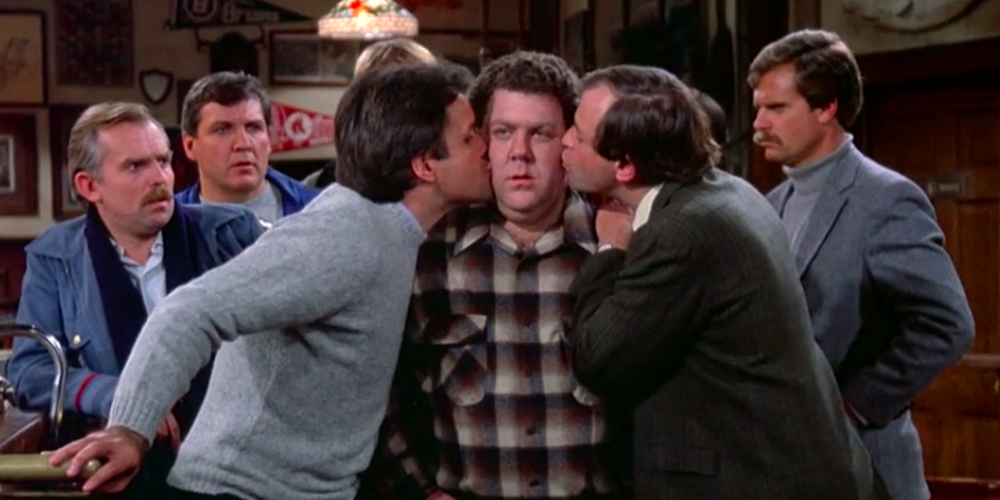
Cheers: Boys in
the Bar
"The Boys
in the Bar" is the 16th episode of the first season
of the American situation comedy television series
Cheers. It originally aired in 1983 on NBC.
It is co-written by Ken Levine and David Isaacs and
directed by James Burrows. This episode's narrative
deals with homosexuality, coming out, and homophobia. It
was inspired by the coming out story of former Los
Angeles Dodgers baseball player, Glenn Burke. In this
episode, Sam's former teammate, Tom (portrayed by Alan
Autry) reveals his homosexuality and Sam slowly becomes
supportive of him. The bar's regular customers express
their disdain toward Sam's support and fear that because
of Sam's support of Tom, the bar will become a place
full of homosexuals.
[Source:
Wikipedia]
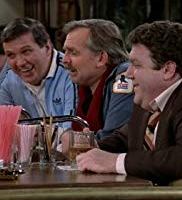
Cheers: Boys in the Bar
That Gay Episode: Showing Acceptance on Cheers
IMDB:
Cheers Gay Episode
Frazier: Visit to a Gay Bar
Midway
through its first season, Cheers did a gay episode that
not only stands up well today, nearly 35 years later,
but also encapsulates everything the show would do well
during its subsequent decade on the air.
Titled "The Boys in the Bar," the episode is lean. There
is no B plot and it unfolds in two acts that each
contain one long scene. However, in these two scenes,
the audience gets to see Sam Malone (Ted Danson) come
around to supporting his former teammate, who has
recently come out as gay. And then he decides that he
supports all gay people, even the ones he doesn’t know
personally and even if they decide to congregate at his
bar.
What’s great about "The Boys in the Bar," aside from
Sam’s growth, is that it positions Diane Chambers
(Shelley Long) as an advocate for gays. Even when
everyone else in the bar wants Sam to throw out some
gay-seeming customers in an effort to stop Cheers from
turning into a gay bar, Diane reminds them all how
ridiculous they’re being and that their objections are
rooted in bigotry.
Sam eventually comes to understand this too, and when
Norm (George Wendt) questions what kind of bar Cheers is
turning into, Sam says he doesn’t care, so long as it
doesn’t became "the kind of bar I have to throw people
out of."
Diane’s response is great: "That was the noblest
preposition you ever dangled."
Throughout this commotion, Diane has maintained that
there are already gay men in the bar, and most everyone
assumes it’s the new guys. One has a killer mustache,
one is sporting some tight jeans, and they both ordered
light beers. In the final moment, however, it’s revealed
that the homosexuals are actually two of the barflies
who have been in the background the entire time. They
both lean in to give Norm a peck on the cheek, and while
that is this episode’s corniest moment, there’s still
something to be said for it: that gay people don’t
always look gay. They’re not necessarily young or
good-looking. They look like just anyone and everyone.
[Source: Drew Mackie, Gayest Episode Ever]
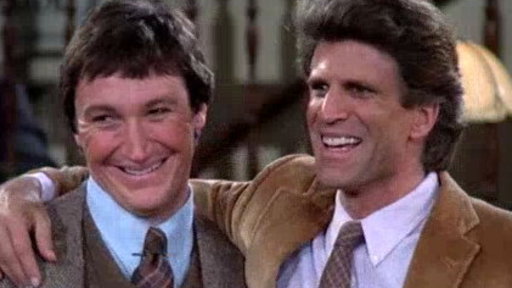
Cheers: Boys in the Bar
That Gay Episode: Showing Acceptance on Cheers
IMDB:
Cheers Gay Episode
Frazier: Visit to a Gay Bar
I was
watching episode 16 of season one of Cheers: "The
Boys in the Bar." And wow. In this episode, Sam is
inspired by Diane to show support for an old fellow
baseball player who's recently come out. It's a nice
moment undermined only by an odd moment where Sam
furiously tells Diane that he thinks guys should be
guys. Only, that's just the first act. The main thrust
of the episode centers on the story appearing in the
paper, and the bar regulars deciding that, and then
struggling with the idea that, the bar is about to
become a gay bar, just like an old pub they used to
frequent, and they decide to abandon Cheers and go find
a new bar. Sam is pushed to the verge of throwing three
customers out because they're gay, although thanks to
Diane being the only non-bigoted character, he doesn't,
and has a nice line about not letting his bar become a
place where anybody isn't welcome. The ending is also on
Diane's side, with the twist that the homosexual
customers were actually straight, and two of the angry
mob were actually the gay customers.
But, in between those scenes, much of the episode
focuses on the regulars, those lovable, friendly
characters, Norm, Cliff (John Ratzenberger), Carla,
unironically espousing pretty hateful views about
homosexuality, demanding Sam run them out of the bar,
and then taking matters into their own hands when he
doesn't, and doing it themselves.
Now, the episode is supportive of homosexuality. It's
pushing the message that homophobia is wrong, and I
think trying to display that that sort of thing was
accepted in sports bars of the like, even though the
whole thing is reprehensible. But the whole thing has
such an odd tone to it, the lovable characters are
openly homophobic, their lines treated as fairly
comical. Sam at several points in the episode is
incredibly close to declaring disapproval of homophobia,
or tossing homosexual customers out on their ear.
Obviously this is representative of issues the writers
saw, and obviously that's the message they wanted to
send. I'm not saying I wanted it spoon-fed to me. But
the whole thing had such a weird feel to it, that I
just... I guess maybe that was the point of it. What
better way to get people to think about homophobia than
to have some of the most lovable characters on TV show
it off in a pretty harsh manner?
[Source: British Hobo, Reddit]
Moonlight: Diner Scene
Two Gay Girls Singing in a Cafe
LGBTQ Cafe: Lessons on Coffee and Tea
When Harry Met Sally: Diner Scene
Conversation About Reality: My Dinner With Andre
Gay Couple Gets Kicked Out of Cafe for PDA
Inception: Cafe Scene with Leo DiCaprio and Ellen Page
Short Film: Queer Qafe
Culinary Icon James Beard:
Gay Male Julia Child
Alice's Restaurant by Arlo
Guthrie
Tour of Castro District in San Francisco
Queer Brunching: LGBTQ Roundtable Chat 2
La
Chica De La Barra
Tom's Diner by Suzanne Vega
Mickey and Ian: Marriage Proposal in a Diner
Brunch with Chris Hemsworth in Drag
Coffee House News
HOME
QUEER CAFE
│ LGBTQ Information Network │ Established 2017 |